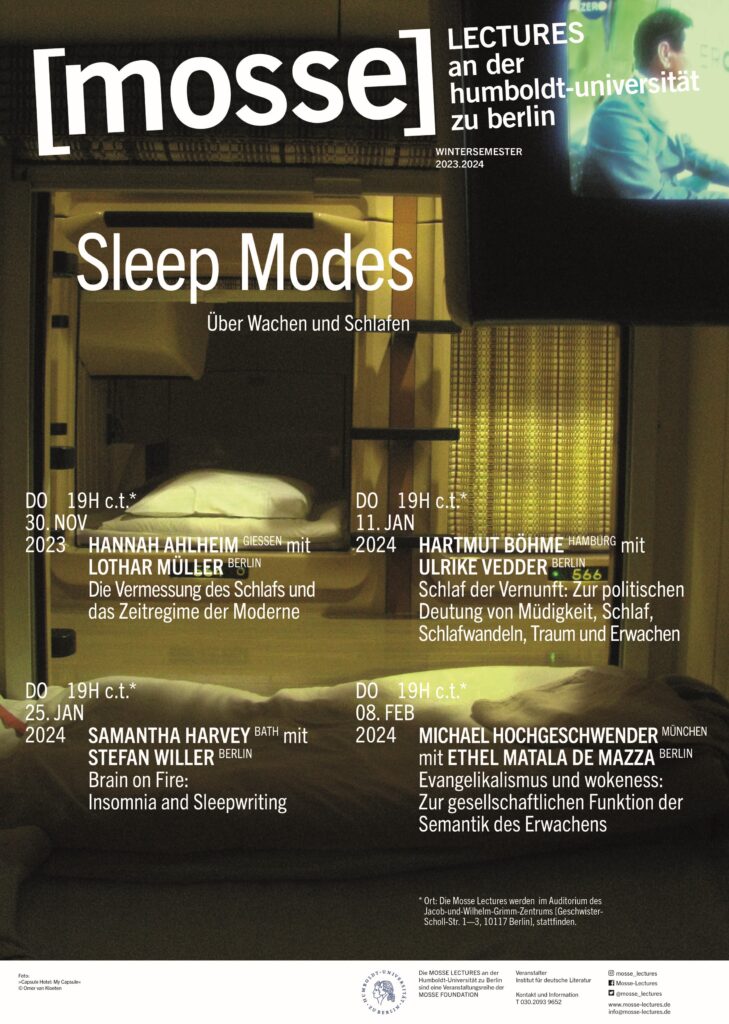Winter Term 2023/24
With reliable regularity, humans take themselves out of the world; they spend a third of their lives asleep. During this time, we are like “unborn,” Sigmund Freud once wrote. “Every awakening is then like a new birth.” And vice versa, it might be added: With each birth begins a lifelong relationship with sleep and awakening. A look into the history of sleep reveals that this relationship is neither “natural” nor free of complications, but is closely related to the sleep cultures of their times. How children are introduced to a sleep rhythm suitable for everyday life; what is imagined by good or healthy sleep; how sleep disorders are dealt with, and how sleep is medically monitored and promoted, has varied historically.
Since the late 19th century, sleep has become the focus of collective attention. Developments such as the mechanization of work and the invention of electric light abolished the traditional division into daytime work and nighttime rest – work could now theoretically be done at any time. In this context, sleep appeared to be a questionable necessity that needed to be understood, researched, optimized or even overcome. The surveying and economization of sleep initiated at this time by entrepreneurs, doctors and sleep researchers continues to this day and has increasingly become a self-technique: with the help of special apps, we can precisely monitor the rhythm and quality of our sleep; sleep meditations are designed to help us fall asleep; medicines and sleep therapies are available for nocturnal restlessness.
In the winter term 2023/24, the Mosse Lectures will explore the economic, cultural, and political significance of sleep and its counterpart, insomnia: Where does the unbroken fascination with sleep stem from, and what challenges are still associated with its scientific and artistic exploration? How has sleep been politically metaphorized and what role does it play in narratives of individual and political passivity? Under which circumstances can sleep become an emancipatory act of resistance to the demands of a society focused on maximizing performance and efficiency?
Hannah Ahlheim
»Die Vermessung des Schlafs und das Zeitregime der Moderne«
with Lothar Müller
Thursday, November 30, 2023 | 7:15 p.m. | Auditorium of the Jacob-und-Wilhelm-Grimm-Zentrum, Geschwister-Scholl-Str. 1-3, 10117 Berlin
Humans are sleeping through a third of their lives – and thus spend a large part of their time unproductively and without consciousness. Sleep resists exploitation and control. How does a modern society, in which rationality and efficient use of time play a central role, deal with this unruly phenomenon? How has our relationship to sleep changed through industrialization, urbanization, and globalization, through new sources of light, permanently awake technical devices, and scientific measurement? What do we learn about the functioning of a society by exploring its sleep?
The lecture accompanies soldiers, DJs and pilots, sleep researchers and sleepers through their nights. It shows how the understanding of man’s sleeping and dreaming changed in the course of the “long 20th century” and how sleep became a valuable “resource” in different ways.
HANNAH AHLHEIM: Historian and professor of contemporary history at Justus Liebig University Giessen; Ahlheim was a research associate at the Center for Contemporary History Research in Potsdam and, from 2017-2018, a fellow of the Institute for the History and Future of Work at the IGK »Arbeit und Lebenslauf in globalgeschichtlicher Perspektive« (re:work) at Humboldt University Berlin; she researches the history of National Socialism, the history of anti-Semitism, the unconscious in 20th-century history and on the history of sleep and time; her study »Der Traum vom Schlaf im 20. Jahrhundert« was published by Wallstein in 2018.
The lecture will be held in german.
gallery:
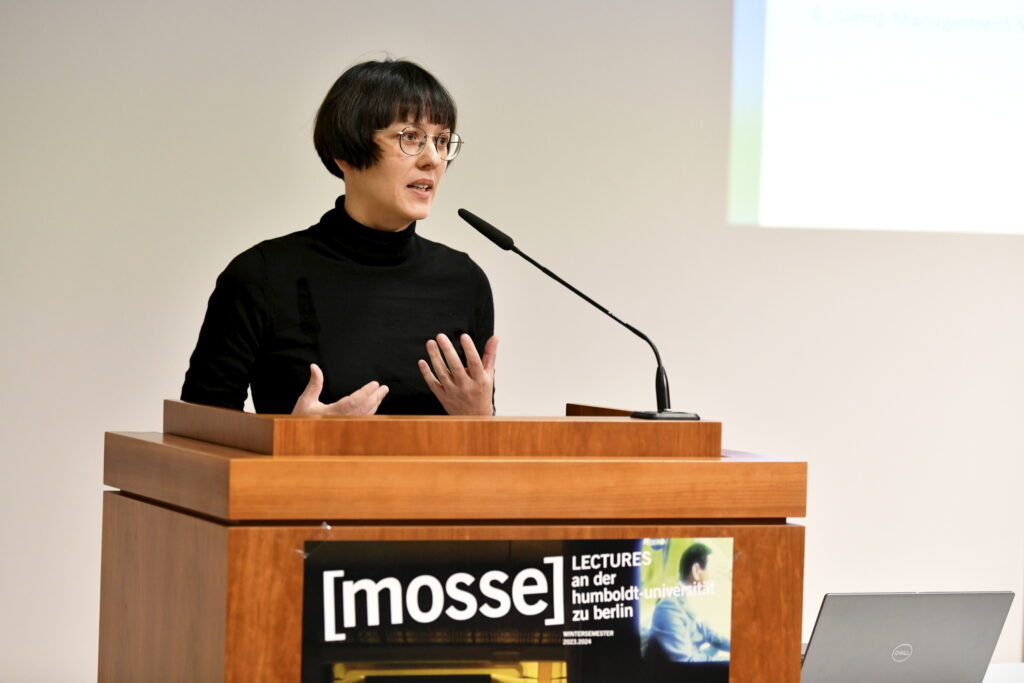
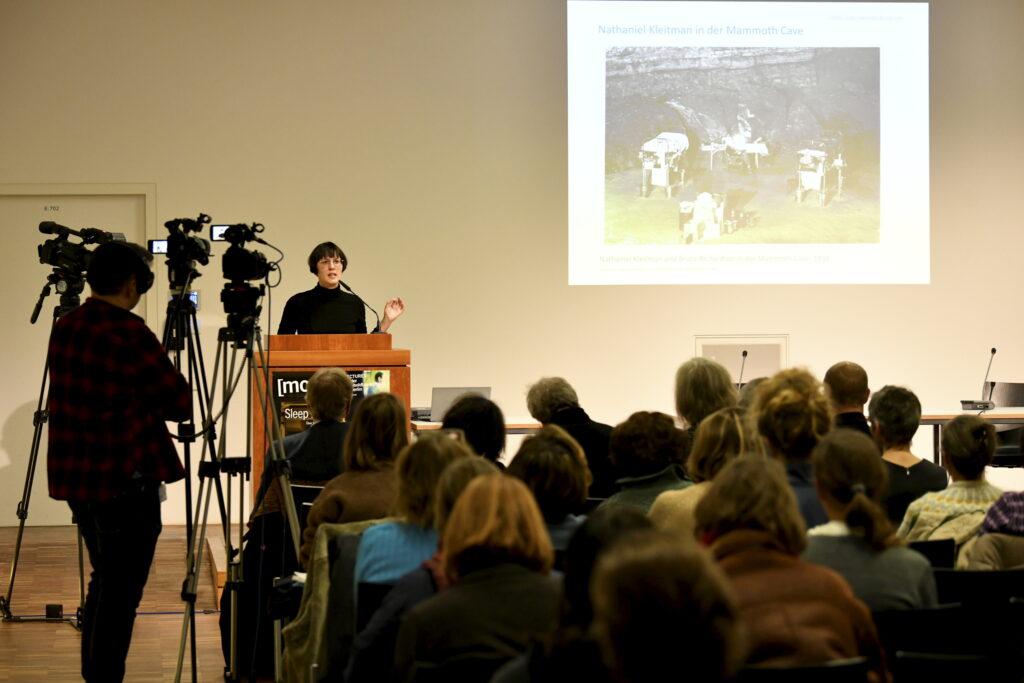
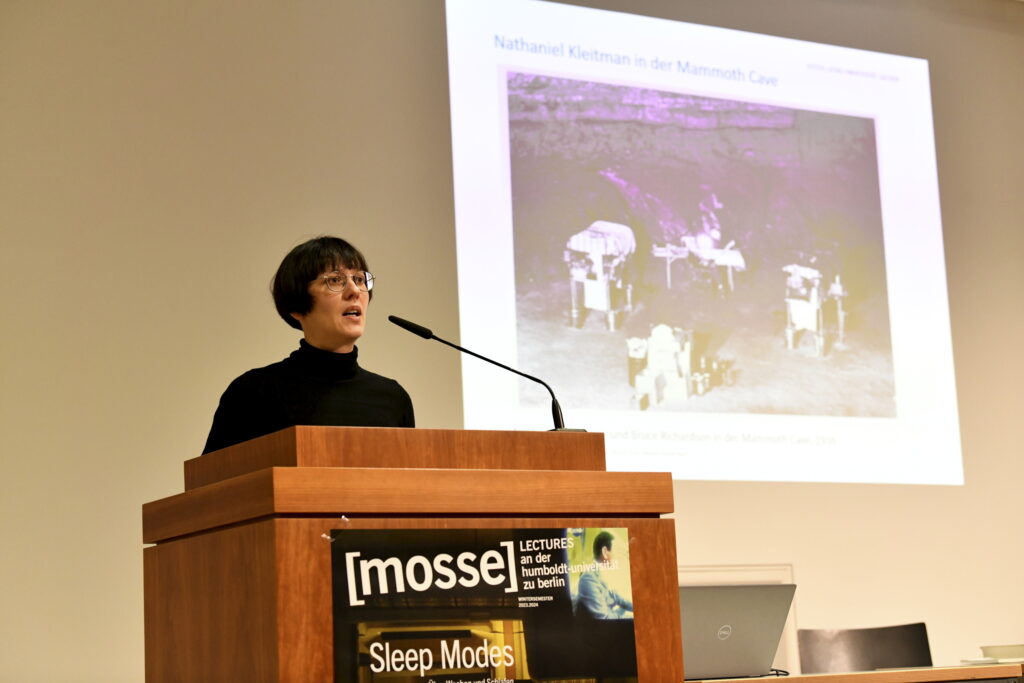
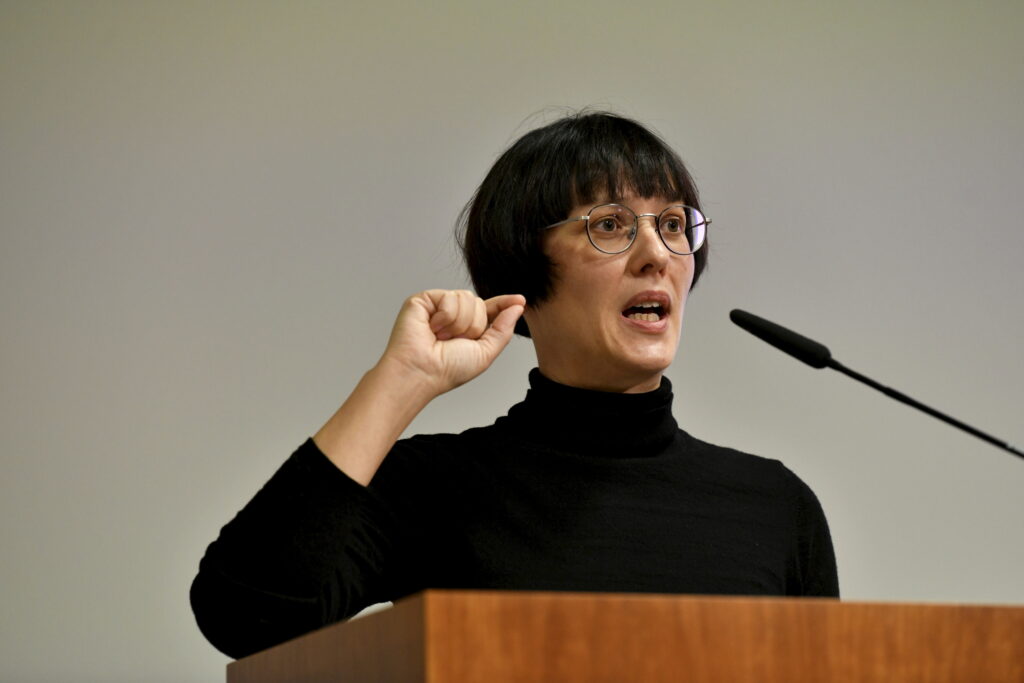
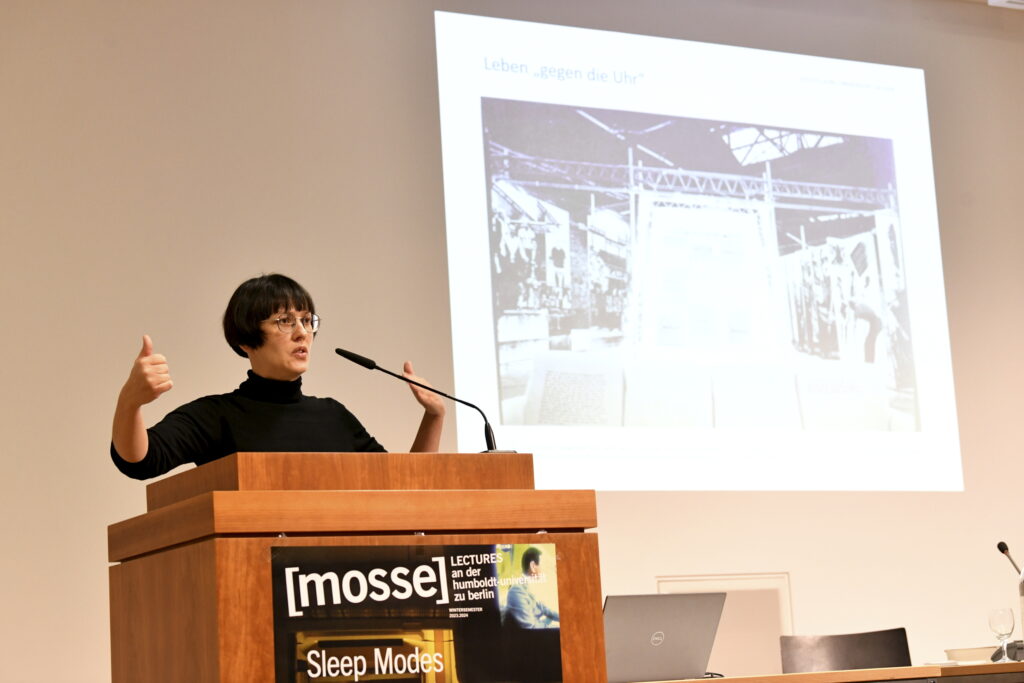
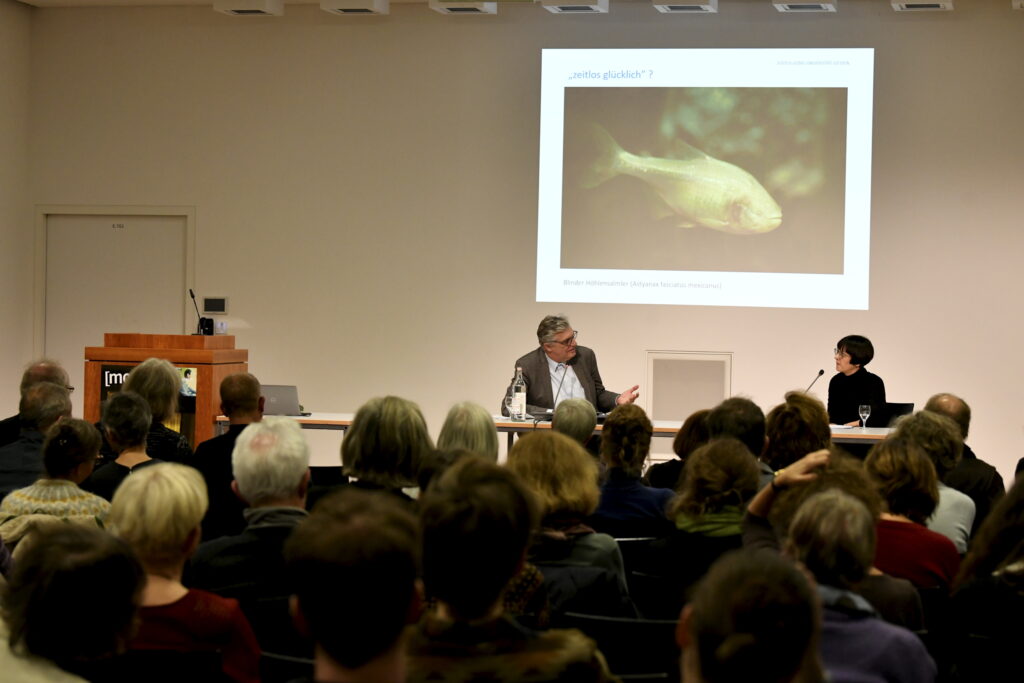
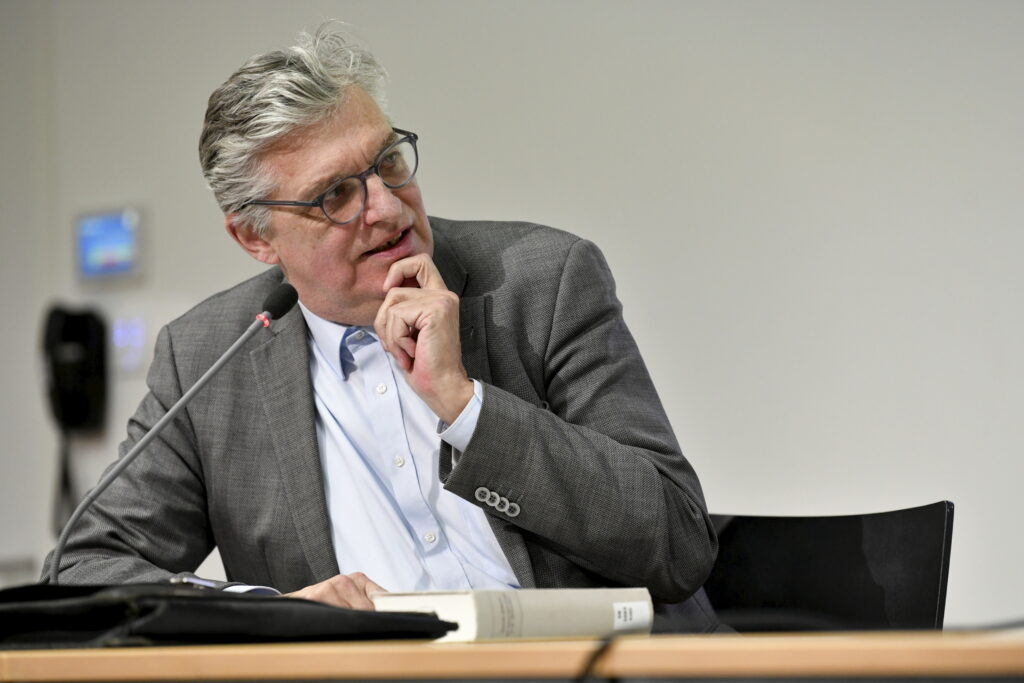
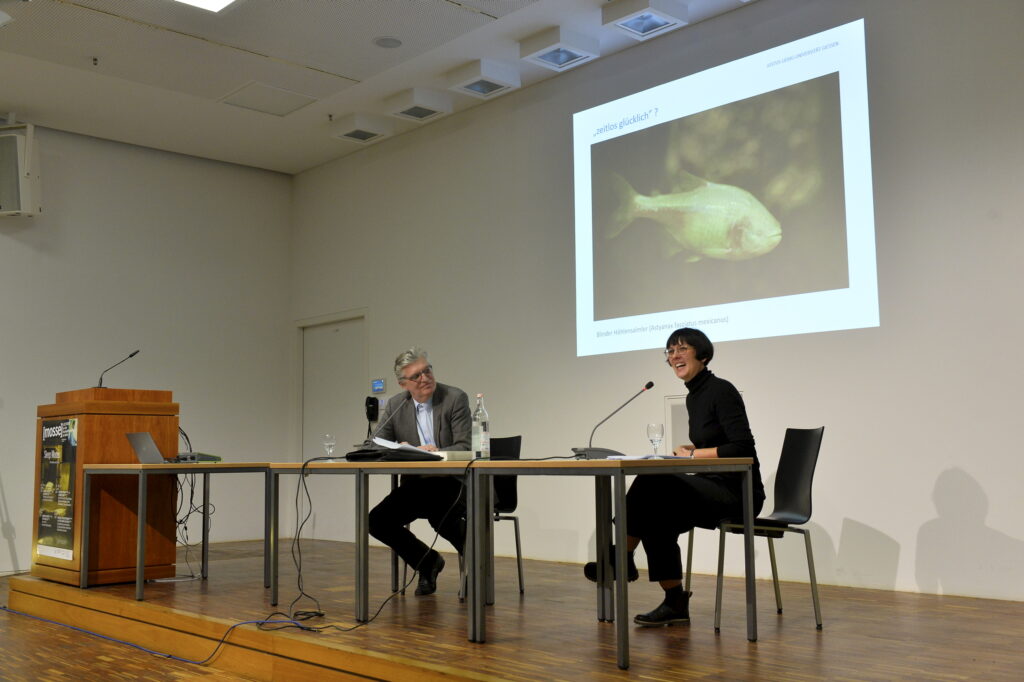
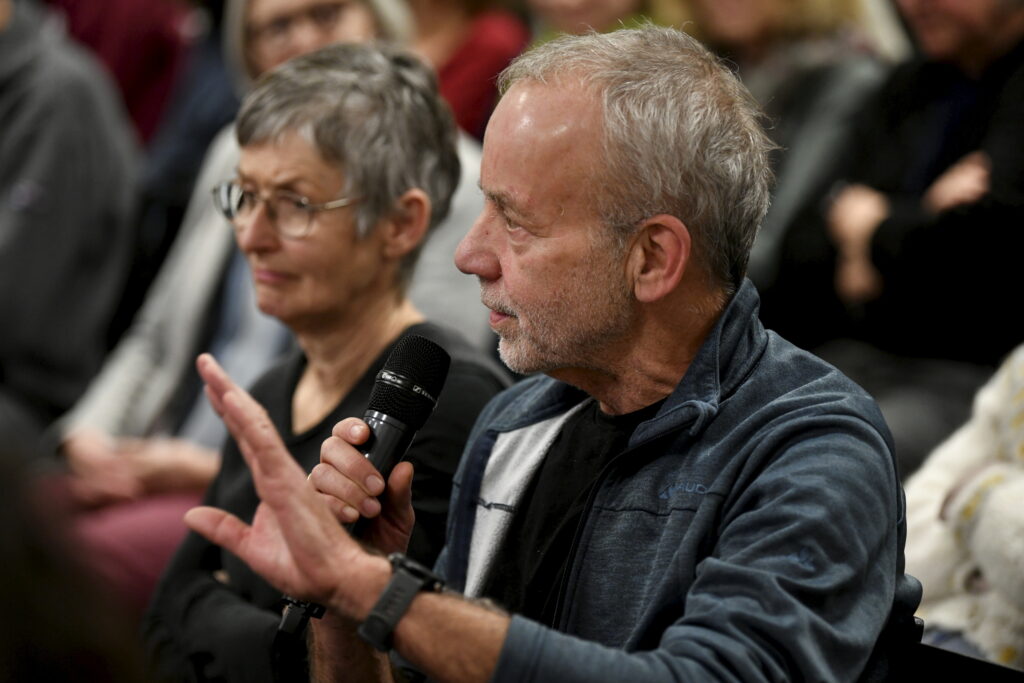
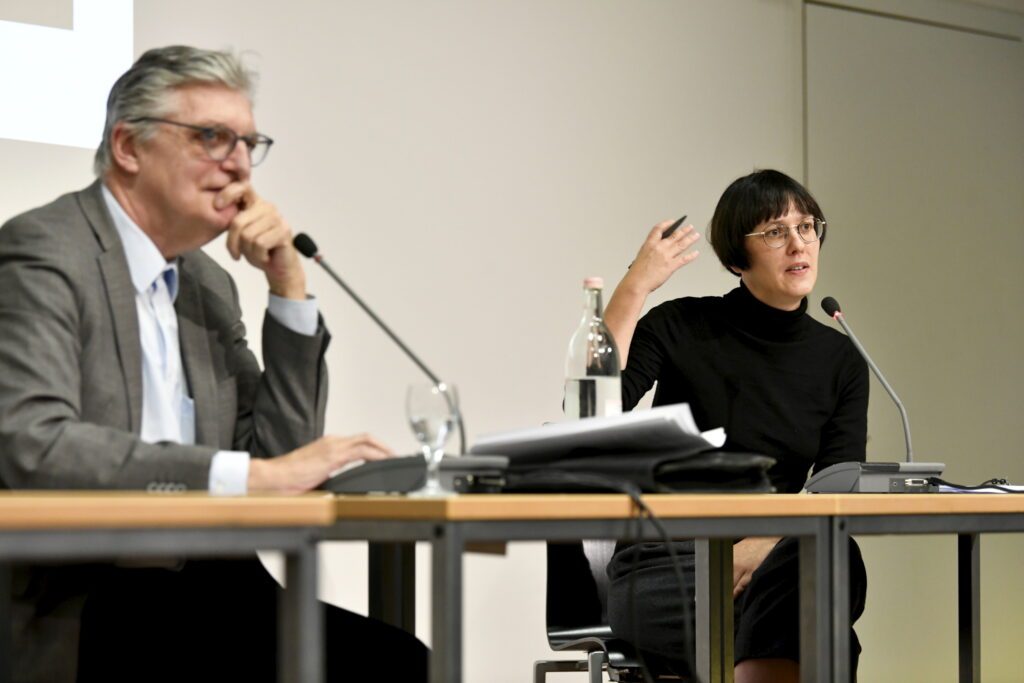
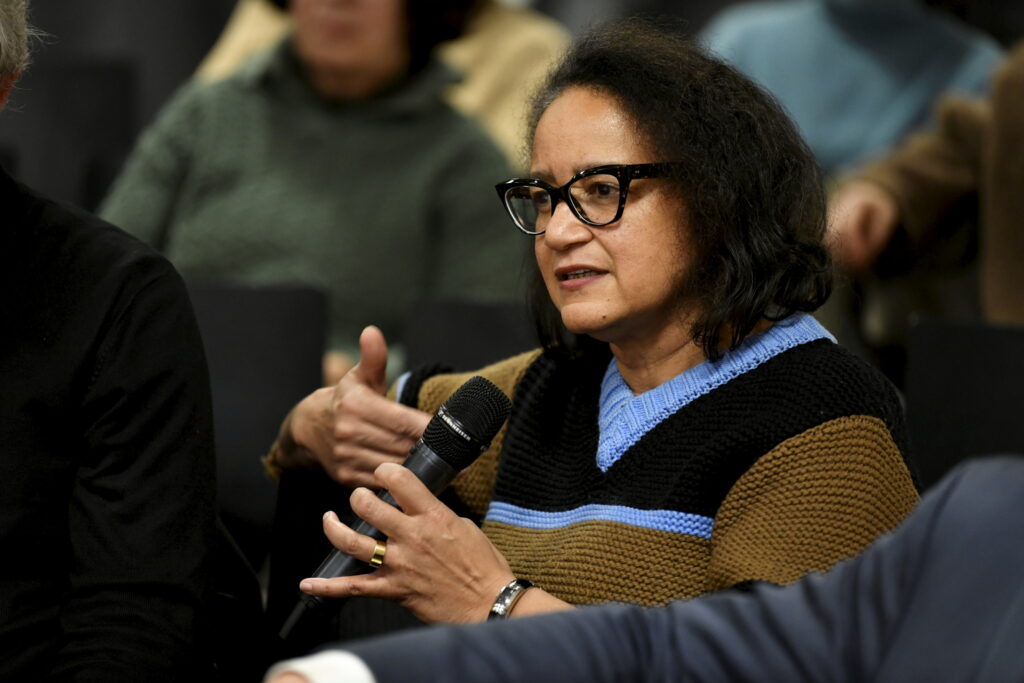
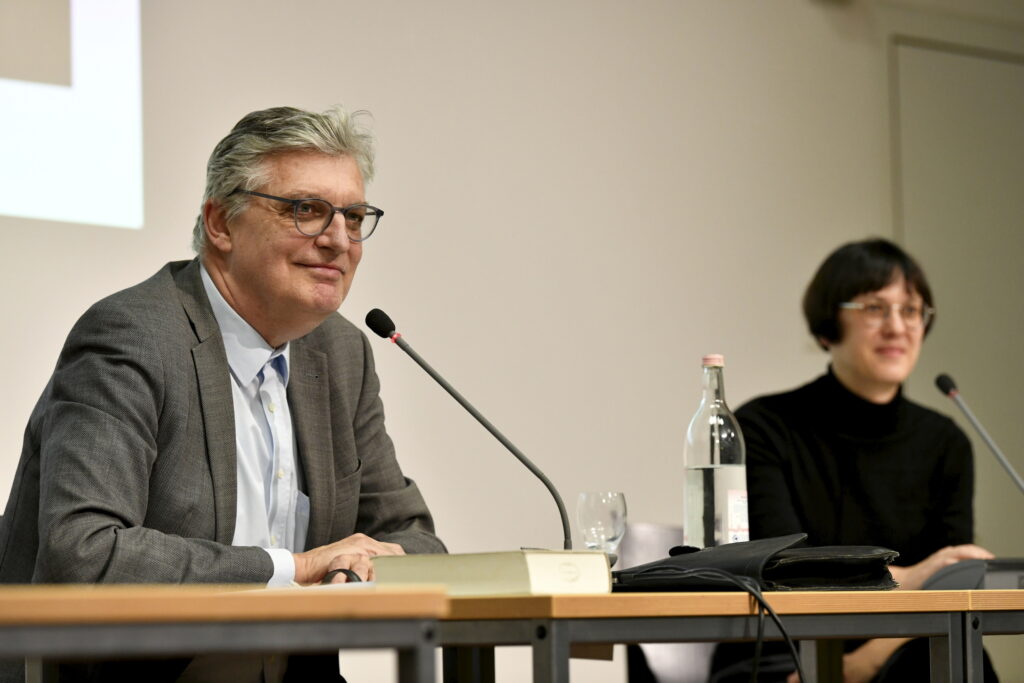
Hartmut Böhme
»Schlaf der Vernunft: Zur politischen Deutung von Müdigkeit, Schlaf, Schlafwandeln, Traum und Erwachen«
with Ulrike Vedder
Thursday, January 11, 2024 | 7:15 p.m. | Auditorium of the Jacob-und-Wilhelm-Grimm-Zentrum, Geschwister-Scholl-Str. 1-3, 10117 Berlin
Starting from Francisco Goya’s Capriccios on the »Sleep of Reason«, the lecture will examine essential states as well as border phenomena of sleep. After an overview of the essential phenomena of sleep, the semantic fields are sketched that have led to the metaphorical interpretation of the manifestations and practices of sleep. Thus, for example, fatigue, sleep, sleepwalking, dreaming, and awakening, which are actually bodily and phantasmatic states or processes, became ›source fields‹ of metaphors: these added cultural ›meaning‹ to political states or actions. In this manner, levels of meaning were implanted in the political system that challenged or even abolished the limitation of the political to the conscious and discursive as defining markers of politics. Hallucinatory or somnambulistic collective states thus belong to the political just as much as dream-like illusions or an exhausting fatigue of individual subjects. But also political awakening movements can be interpreted as ‘awakenings’ from a general state of twilight and unconsciousness. In the 20th century, pharmaceutical and toxic agents became crucial, transforming all levels and borderline states of sleep into a ›regime‹. Has this ›artificialization‹ of sleep and wakefulness also developed a regulative, possibly anestheticizing and manipulative force in the political? Natural scientific perspectives on sleep do not become the subject here. Rather, traces of language and cultural imagology are pursued, which can broaden our view of politics.
HARTMUT BÖHME: Literary and cultural scholar, until his retirement professor of cultural theory and history of mentality at the Humboldt University Berlin; Böhme was head of various research projects – including the collaborative research center Transformations of Antiquity, the research training group Codings of Violence in Medial Change; visiting professor at various universities in the U.S. and Japan, as well as fellow at the international College for Cultural Technology Research and Media Philosophy in Weimar and at the Institute for Cultural Studies in Essen; his research and work focuses on cultural theory and literary history from the 18th to the 20th century, cultural history since antiquity, the theory and history of fetishism, the history of science and images, and historical anthropology and psychohistory.
The lecture will be held in german.
gallery:
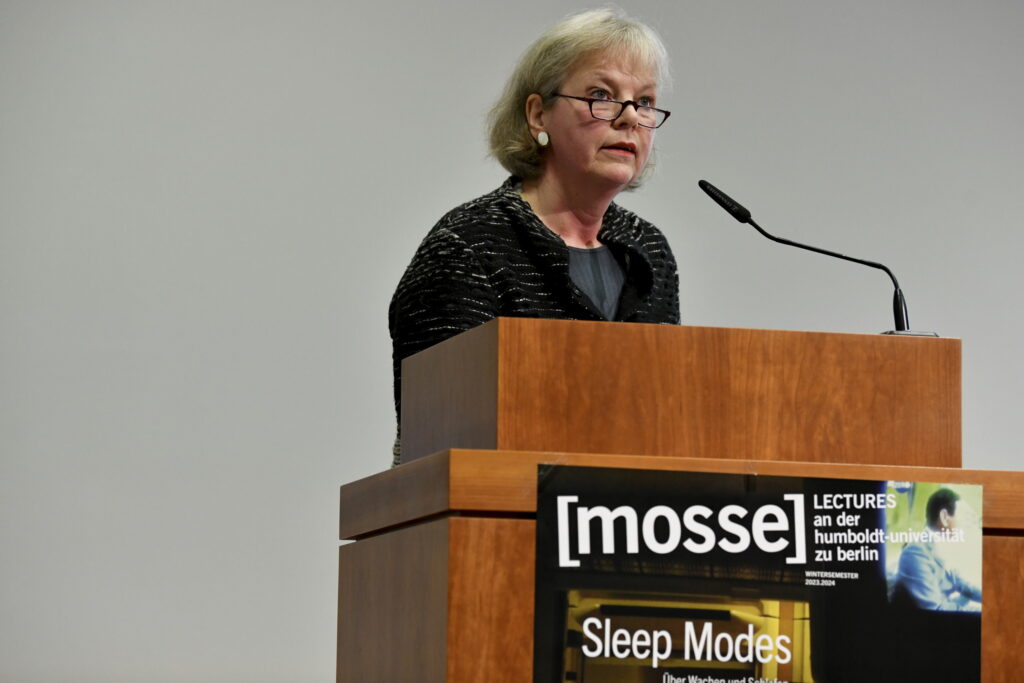
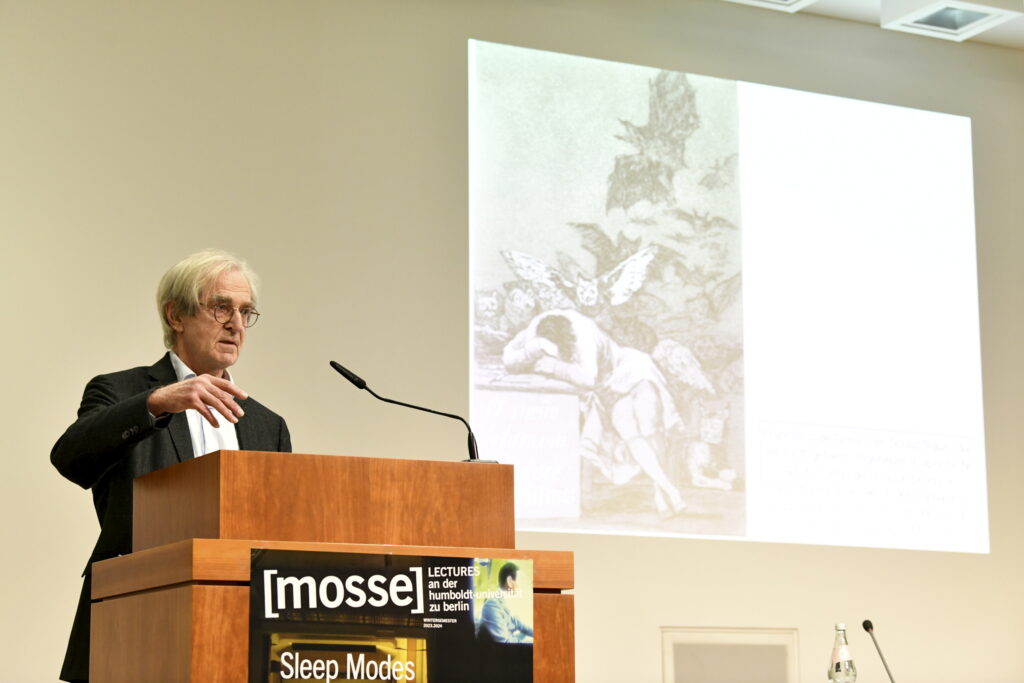
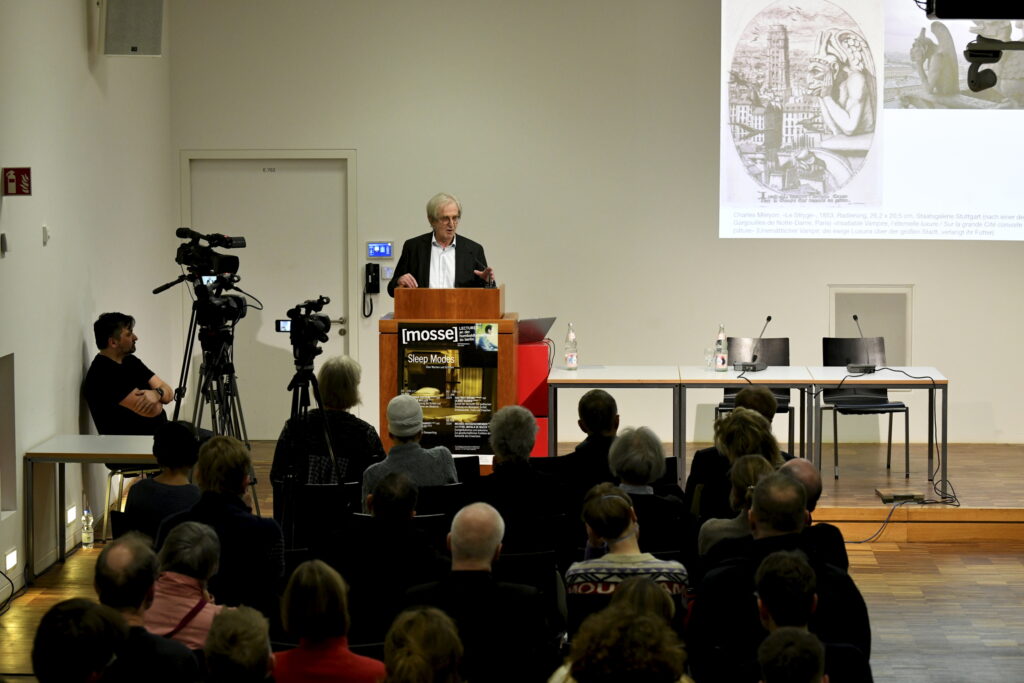
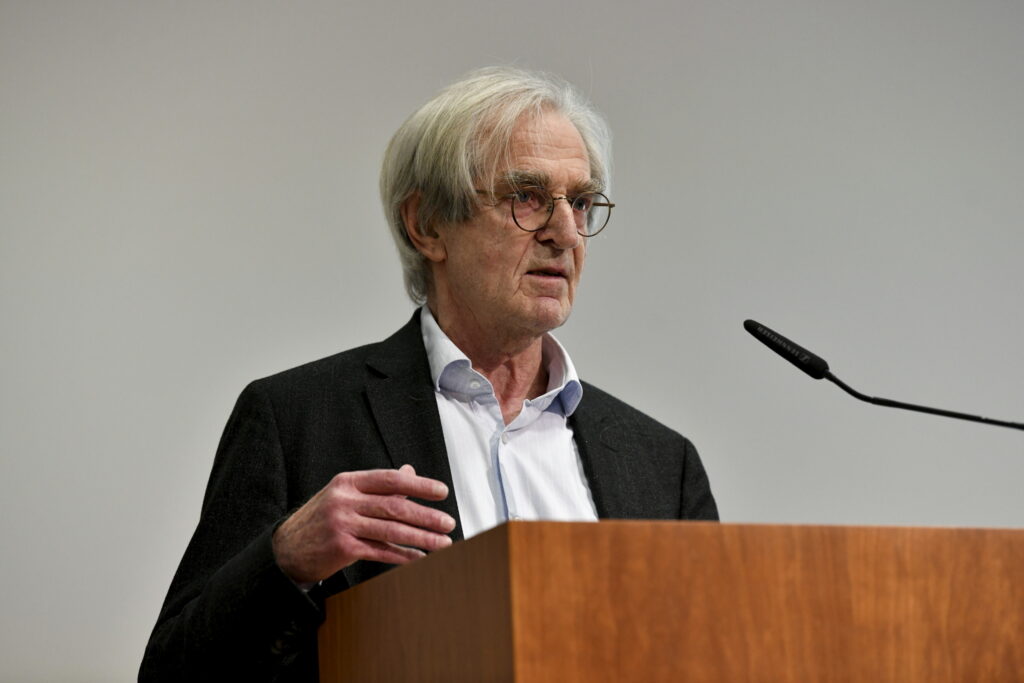
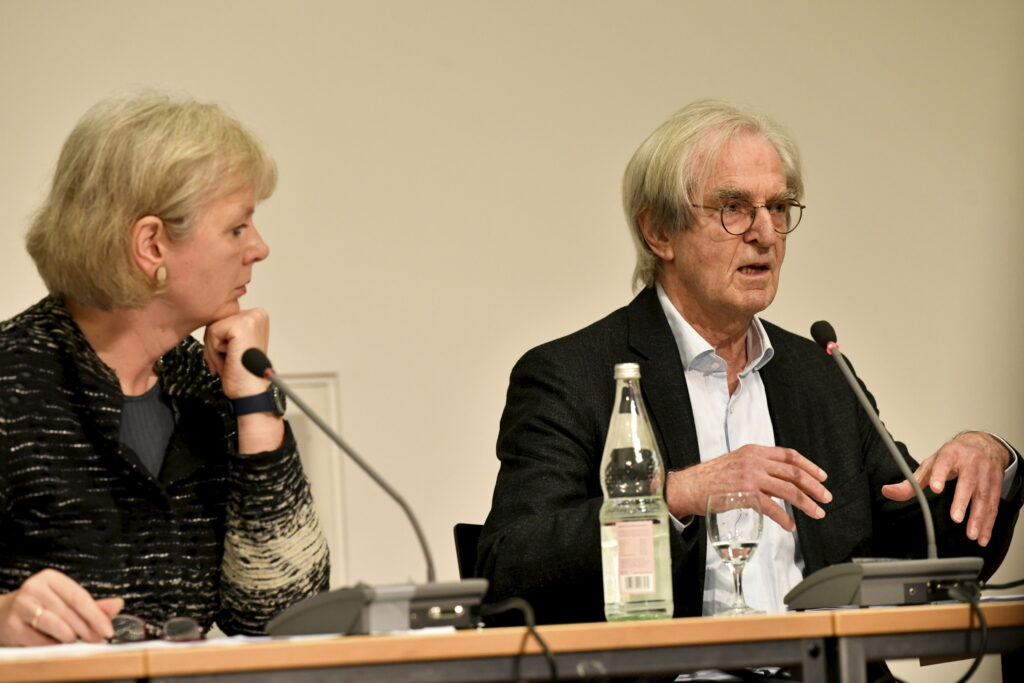
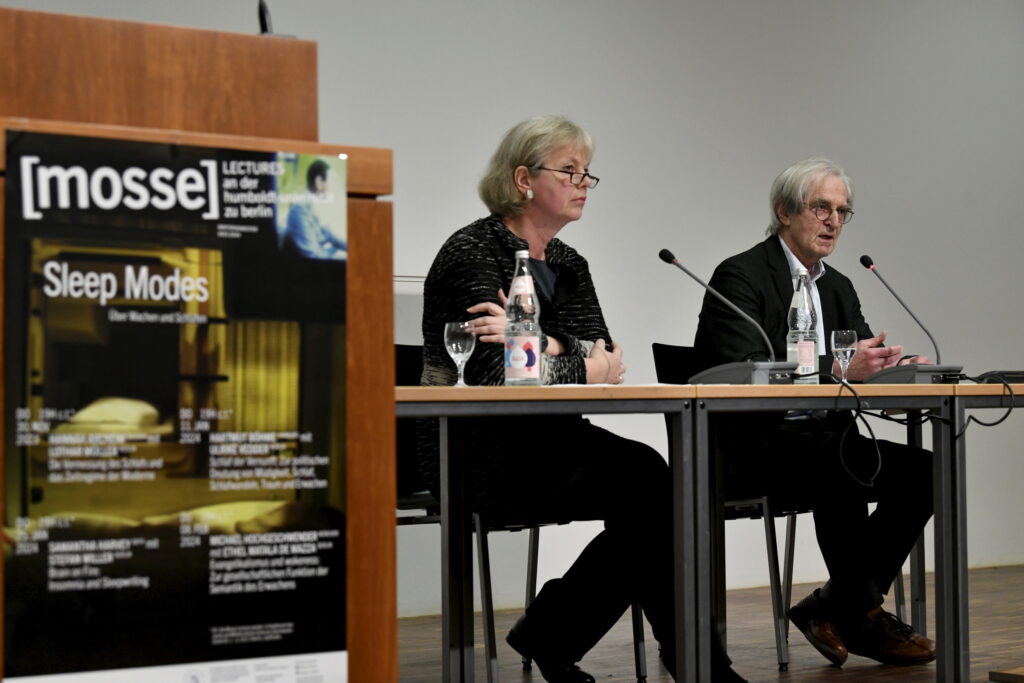
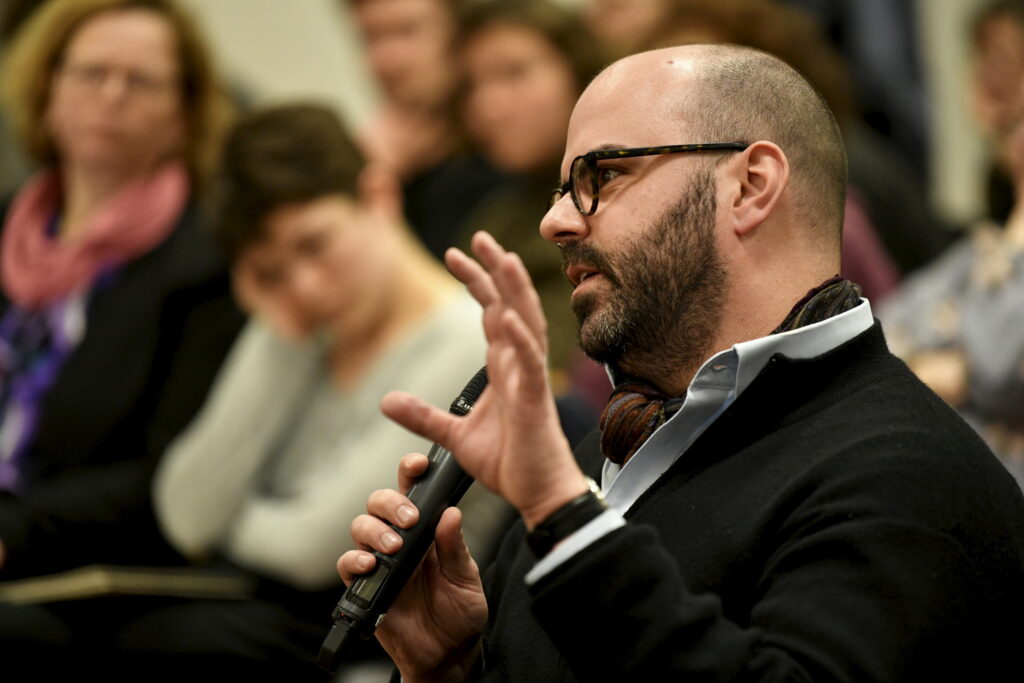
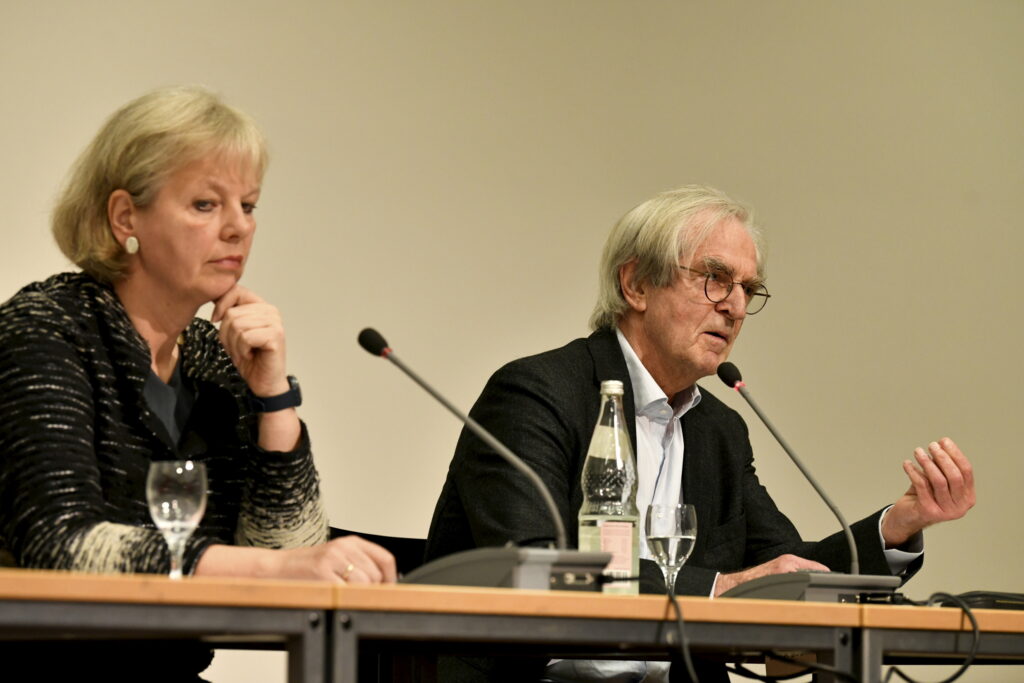
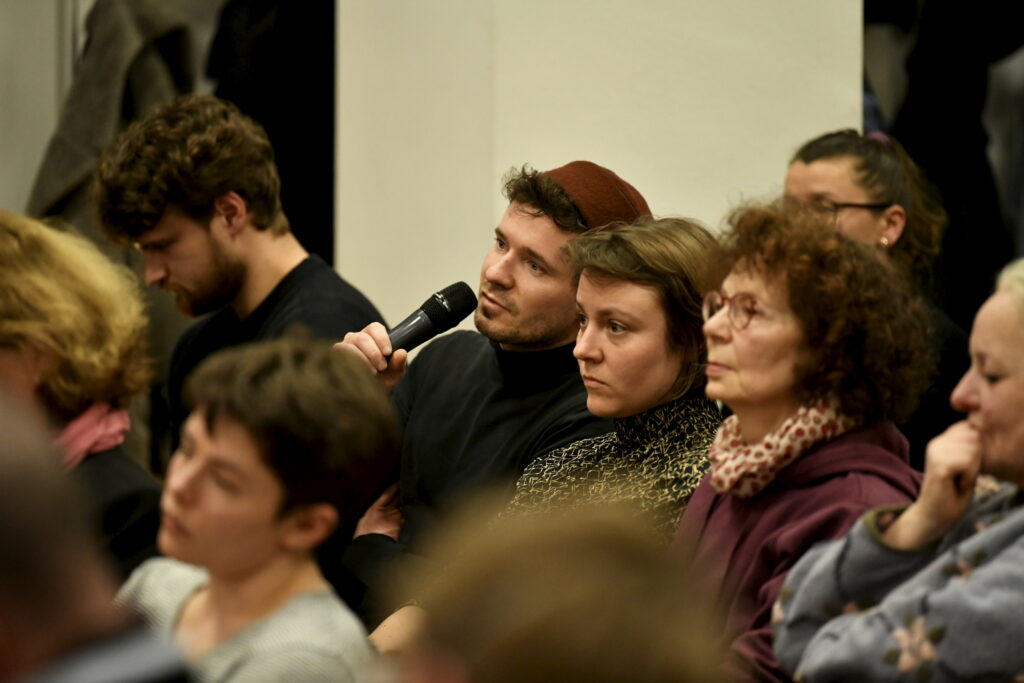
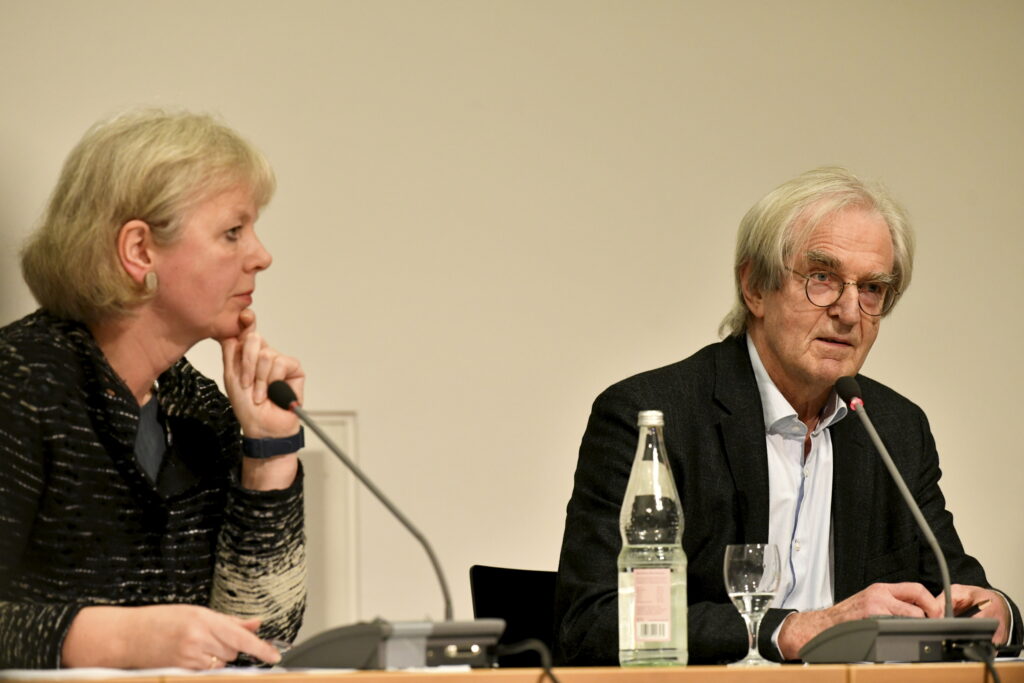
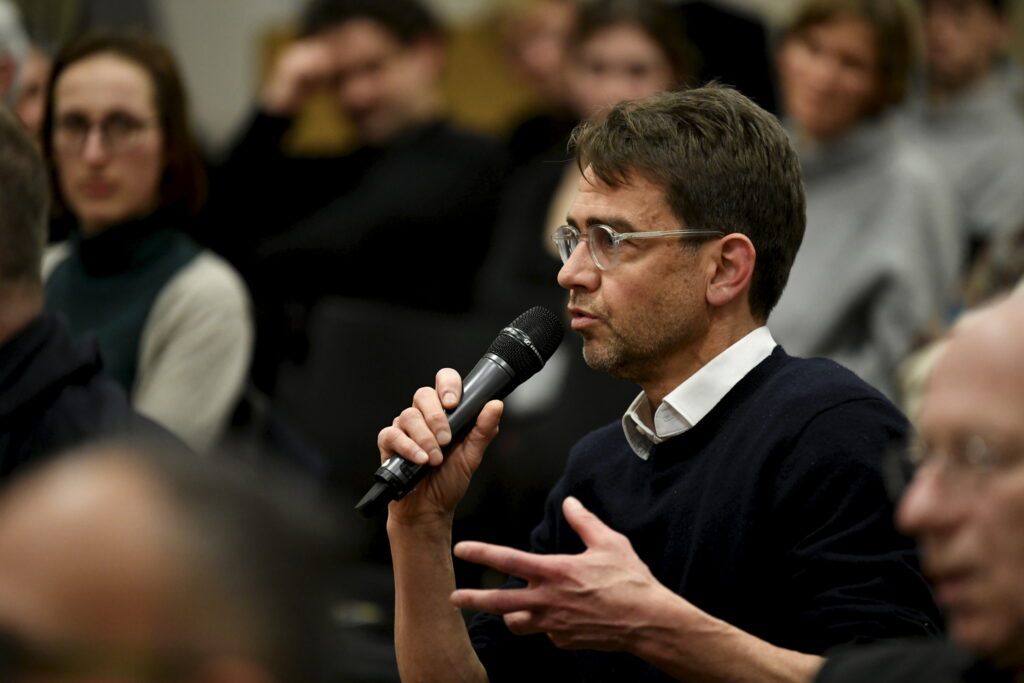
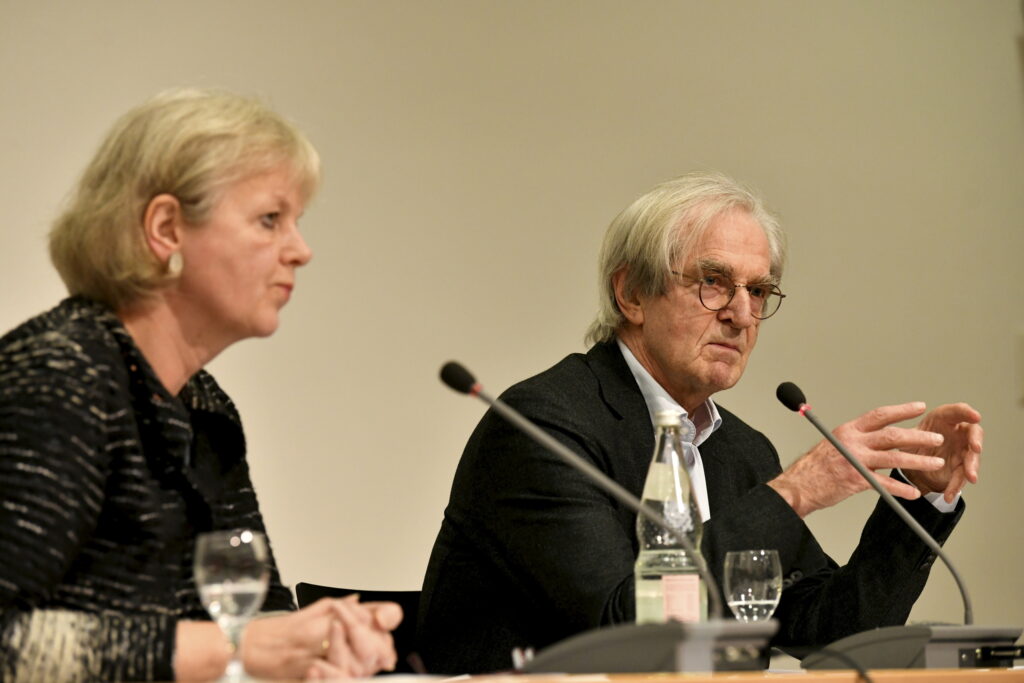
Samantha Harvey
»Brain on Fire: Insomnia and Sleepwriting«
with Stefan Willer
Thursday, January 25, 2024 | 7:15 p.m. | Auditorium of the Jacob-und-Wilhelm-Grimm-Zentrum, Geschwister-Scholl-Str. 1-3, 10117 Berlin
So much has been said and written about the connection between insomnia and creativity, and these discussions often centre on a one-way causal connection: that creativity is a cause of insomnia. ‘I believe this sleeplessness comes only because I write,’ Kafka said in his Diaries. This in turn gives rise to lists of artists and writers who’ve suffered sleeplessness, and much anecdotal posturing around what the novelist Marie Darrieussecq calls ‘the fantasy of the chosen’ – the notion that insomnia is somehow symptomatic of a more than usually astute, alert and elevated mind; a mind awake in all senses. But what of the reverse connection between insomnia and creativity? Not that or if or why creativity causes insomnia, but rather insomnia’s impact on creativity. What does sleep deprivation do to the act of artistic creation? What part does writing, in particular, play in the insomniac’s life – what is it to write with one’s brain on fire?
This lecture looks at what could be thought of as sleepwriting – writing in the twilight zone of extreme sleep deprivation, writing as a substitute for sleeping. Can writing be a form of lucid dreaming, a surrogate for what is lacking during wakeful nights? A way, perhaps, of expressing and sorting subconscious processes; a means of sanity, and a route back to life, to feeling alive?
We explore this domain of sleepwriting to question how sleeplessness urges and alters a writer’s creativity, what is lost when sleep is insufficient or absent, and what there is to be found.
SAMANTHA HARVEY: British author, Senior Lecturer in creative writing at Bath Spa University; since her debut »The Wilderness« (2009), Harvey has published three further novels, which have been well received by critics and nominated for the Man Booker Prize, the Orange Prize and the Guardian First Book Award; in German, »Das Jahr ohne Schlaf« was last published in 2022 by Hanser Berlin.
gallery:
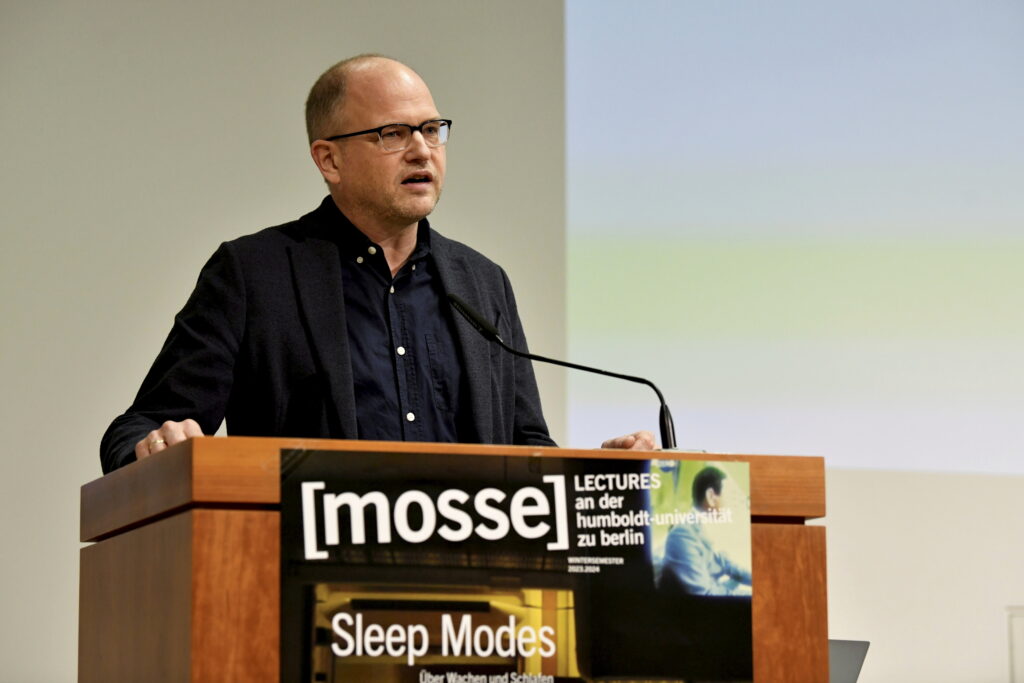
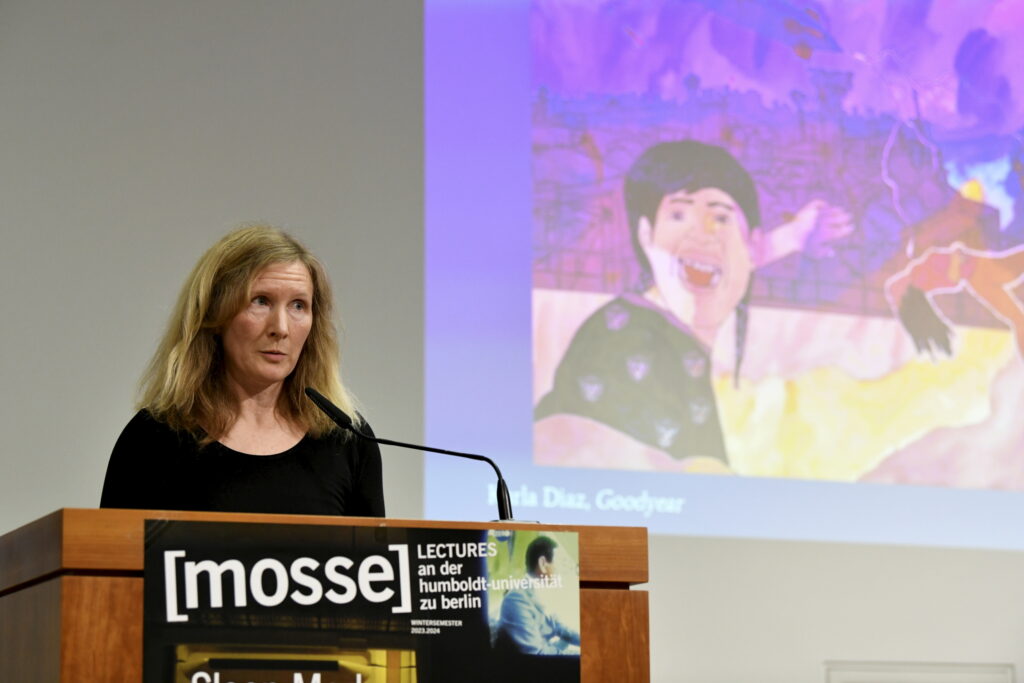
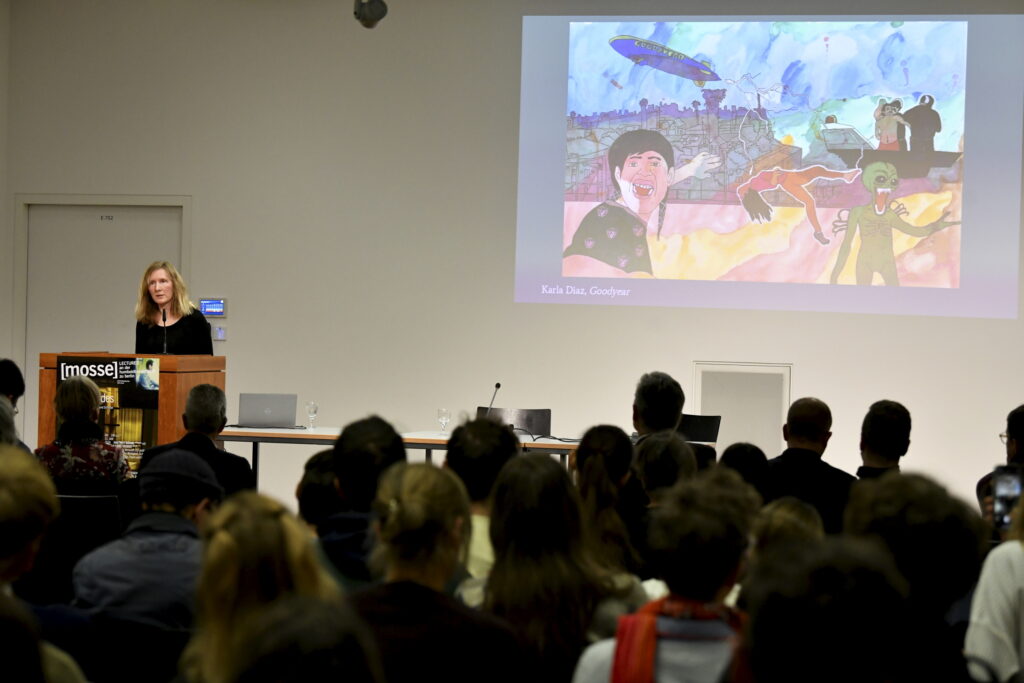
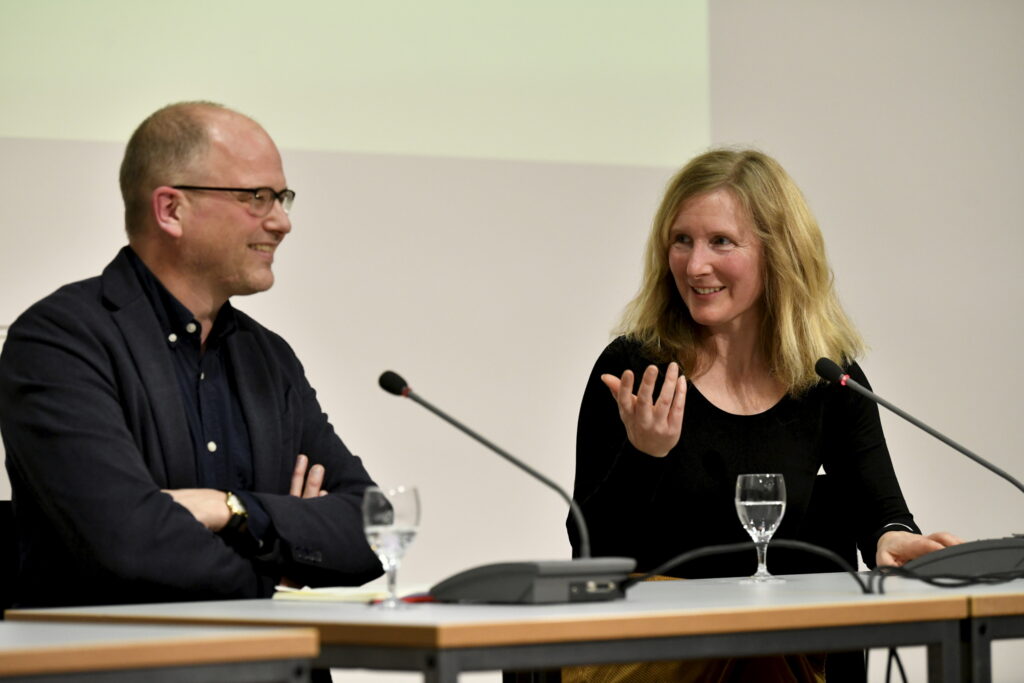
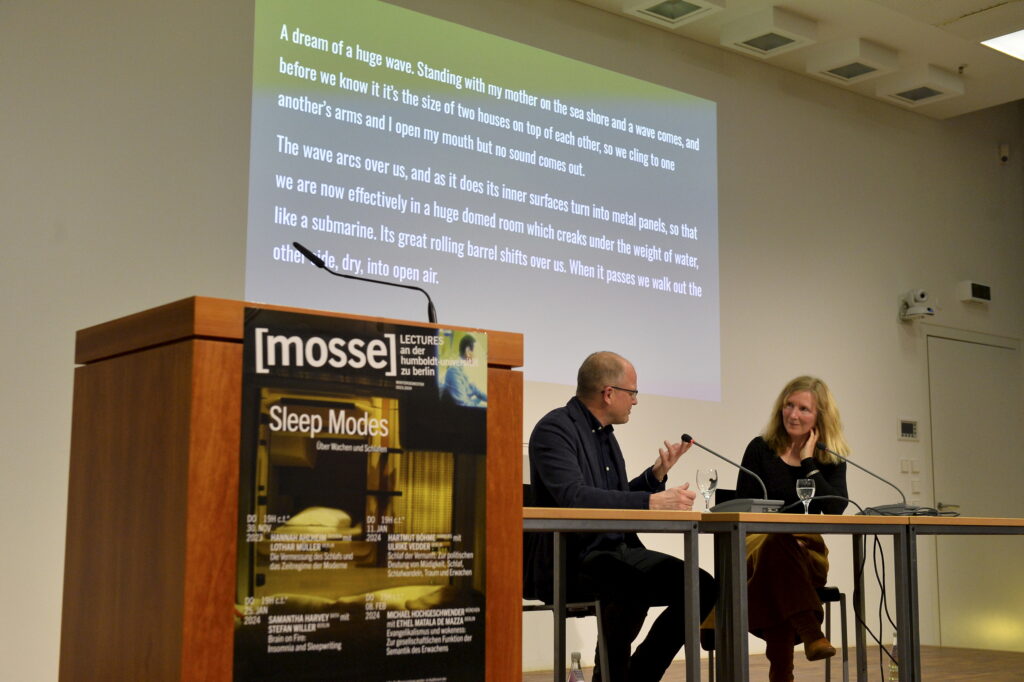
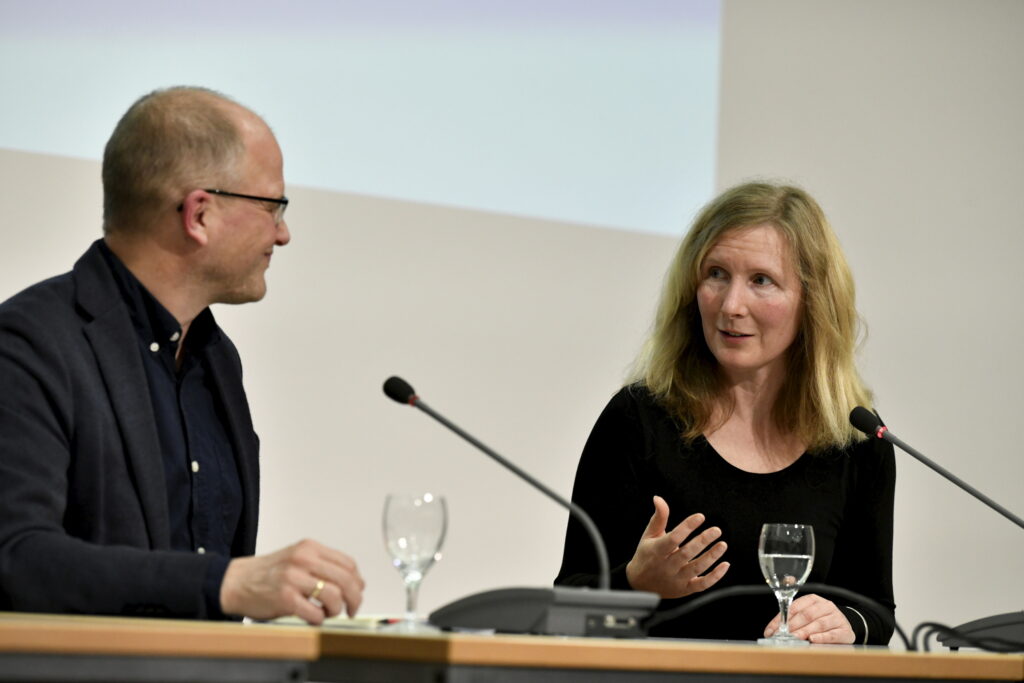
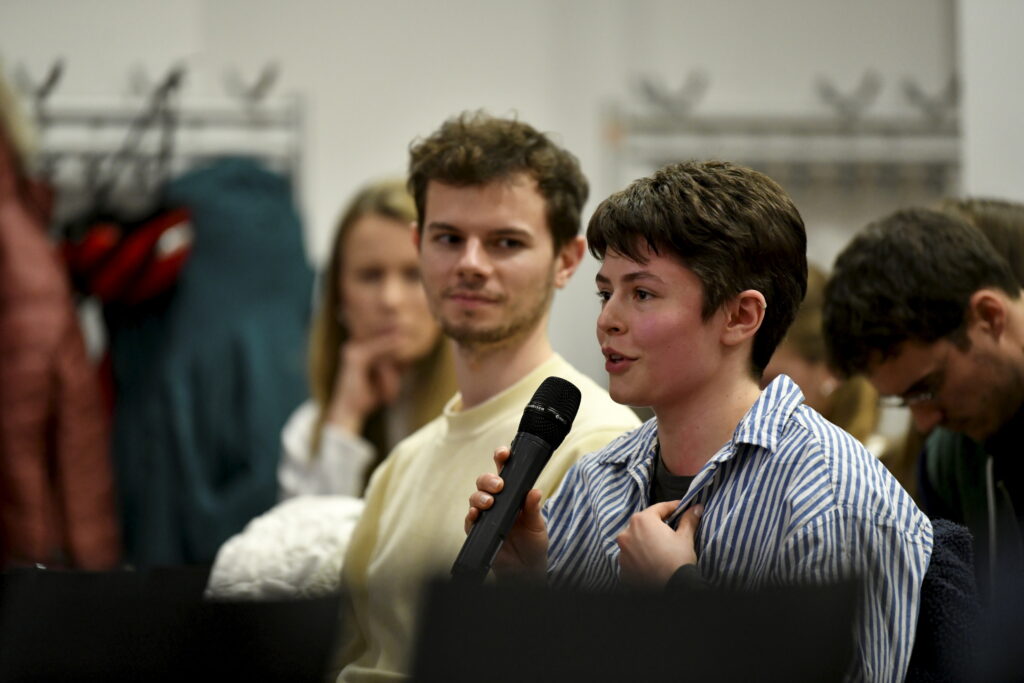
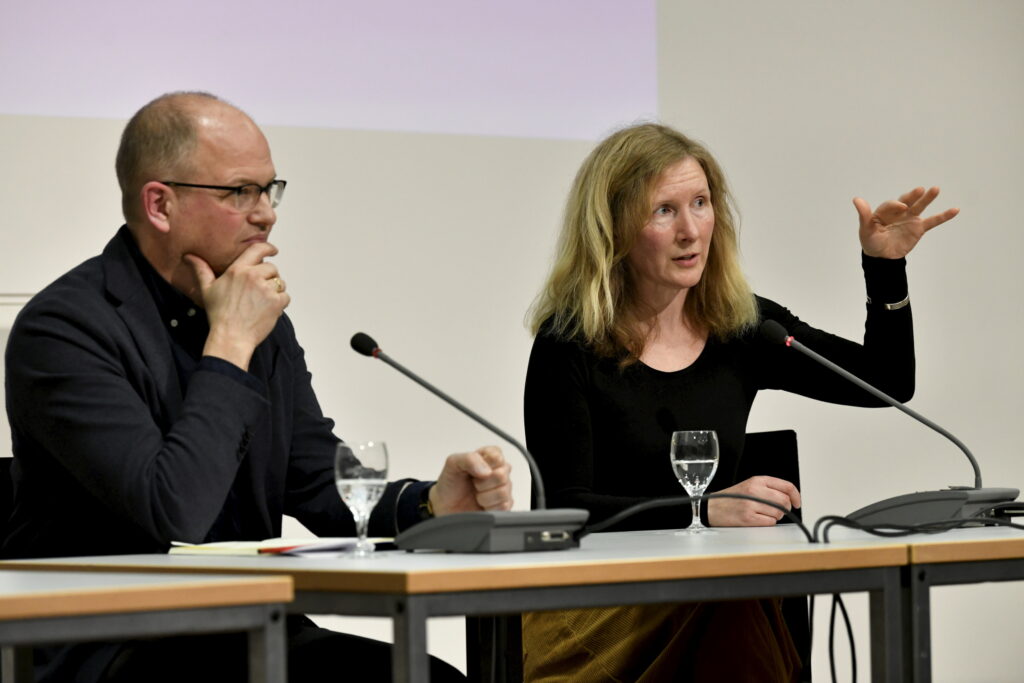
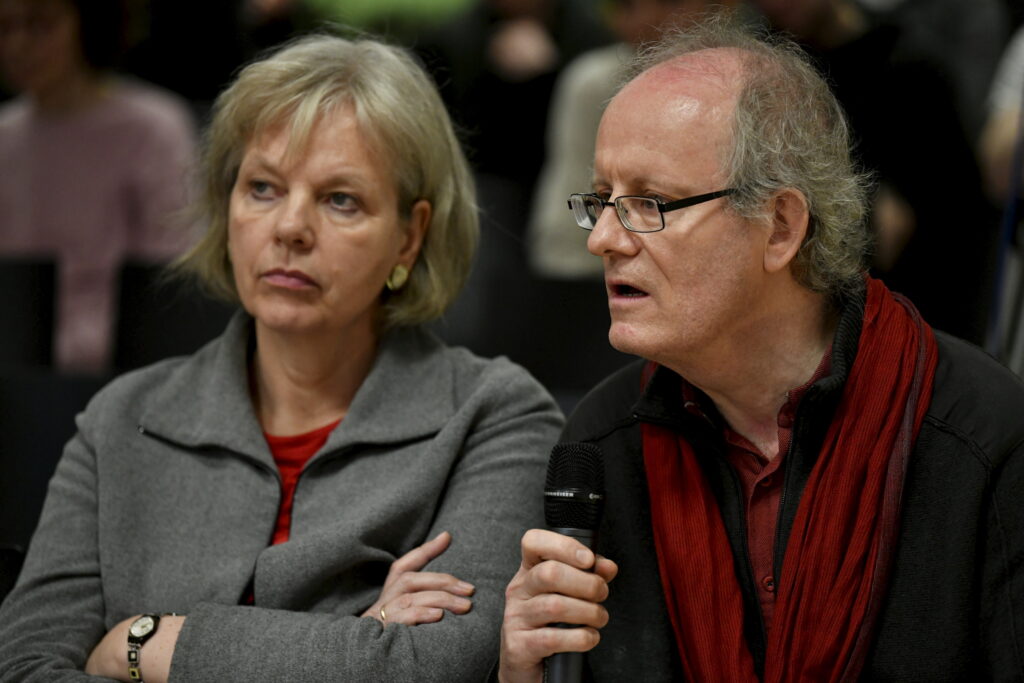
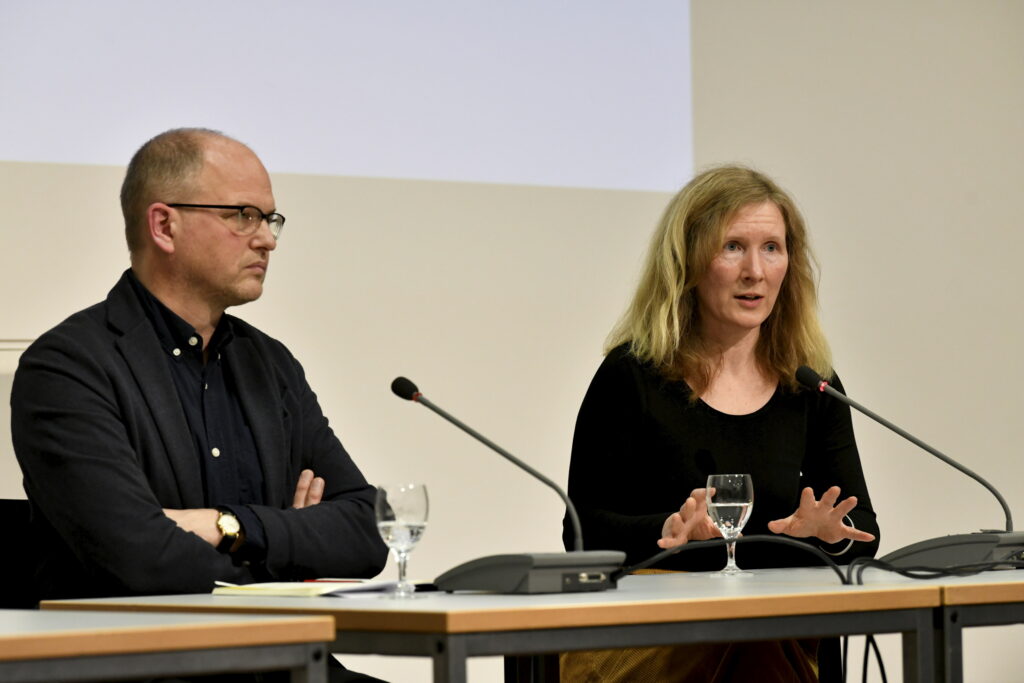
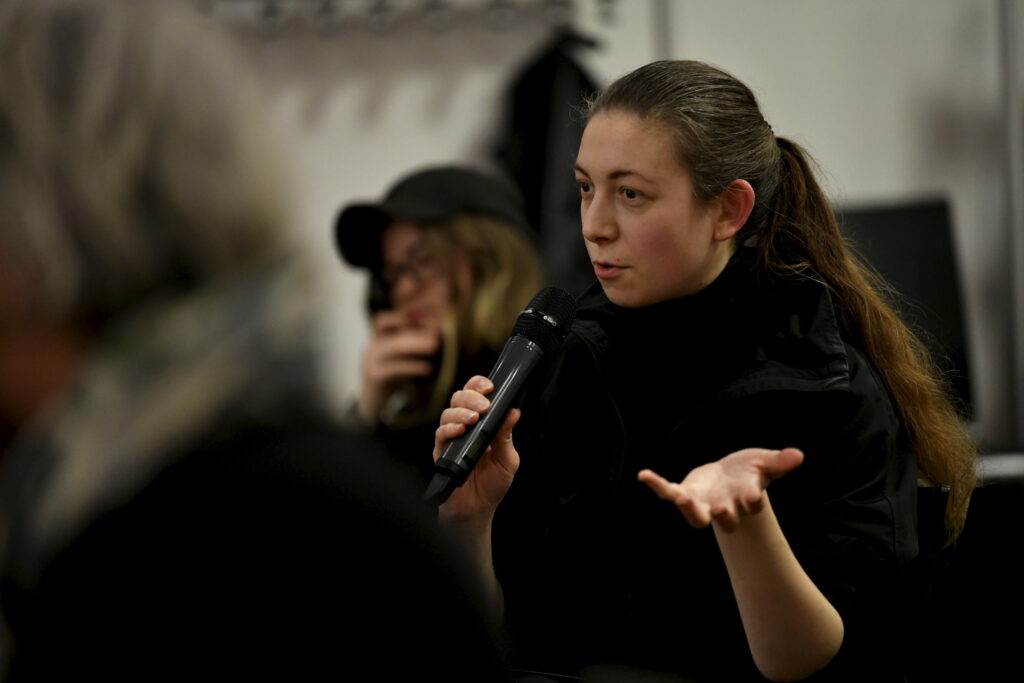
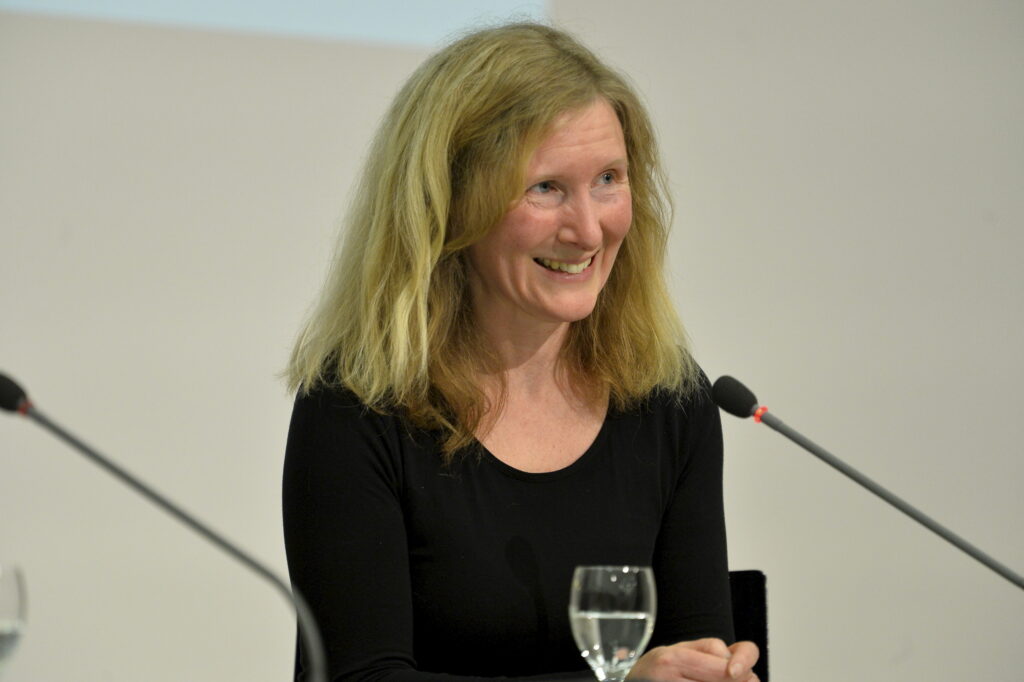
Michael Hochgeschwender
»Evangelikalismus und wokeness: Zur gesellschaftlichen Funktion der Semantik des Erwachens«
with Ethel Matala de Mazza
Thursday, February 8, 2024 | 7:15 p.m. | Auditorium of the Jacob-und-Wilhelm-Grimm-Zentrum, Geschwister-Scholl-Str. 1-3, 10117 Berlin
Modern religious revival movements and postmodern wokeness are extremely vague terms, as they are usually ascribed to others or at least to themselves, which were then reinterpreted in social discourse. This alone makes it difficult to precisely determine content and goals. Above all, however, they refer to very different degrees of wakefulness, regardless of how exactly they are understood. While religious revival movements focus on a process of awakening, wokeness requires vigilance. Nevertheless, the reverse is also true: religious revival demands vigilance, wokeness a form of awakening, whereby both find a negative point of reference in »sleep«. Using examples from the USA, the lecture explores the question of what is understood by »sleep«, »awakening« and »vigilance« and what social and political consequences this understanding entails.
MICHAEL HOCHGESCHWENDER: Cultural historian, professor of North American cultural history, empirical cultural research, and cultural anthropology at the Ludwig Maximilian University Munich; his research interests are primarily the history of the U.S. in the antebellum and Civil War eras and in the period since World War II, the history of women and gender in the U.S., the history of U.S. Catholicism, Westernization, and the cultural history of the Cold War; Hochgeschwender is on the advisory board of the German Society for American Studies and the author of numerous books on the history of religion and culture in the United States.
The lecture will be held in german.
gallery:
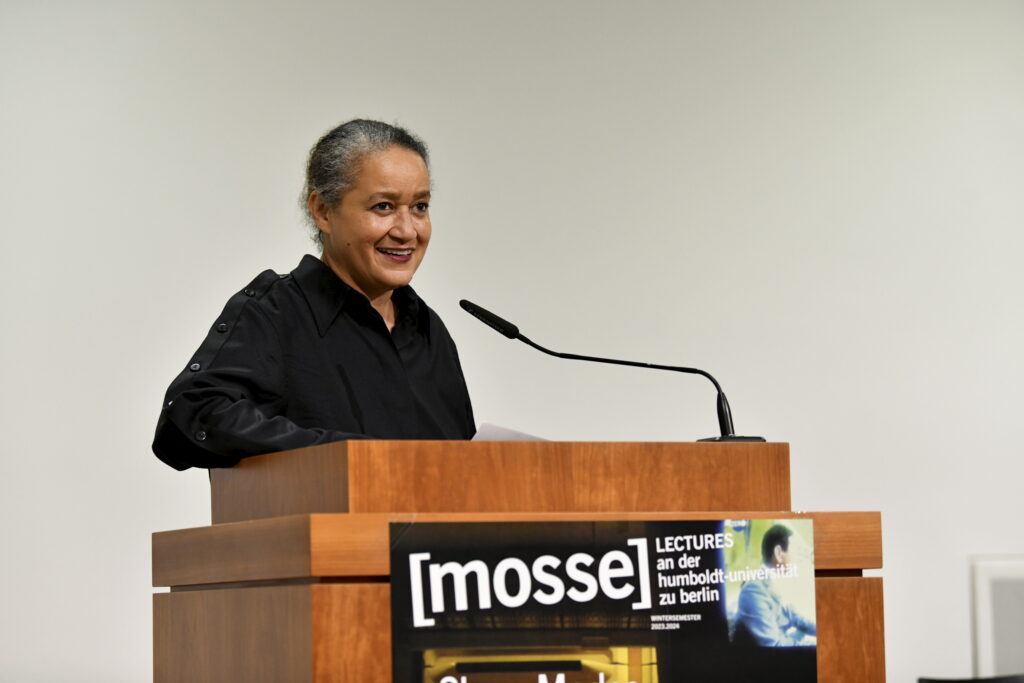
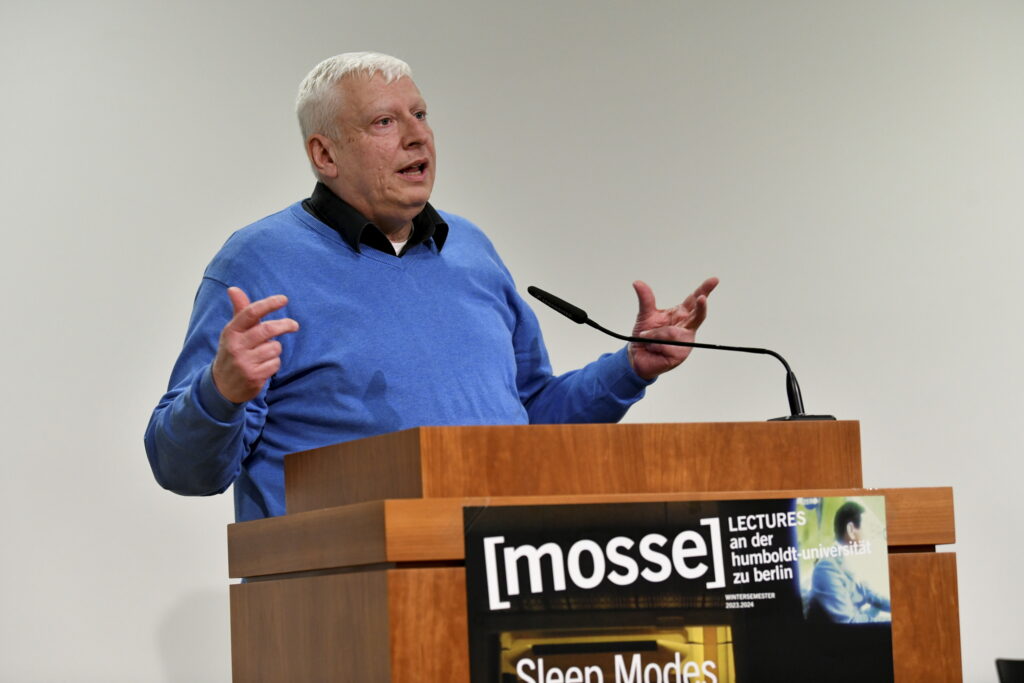
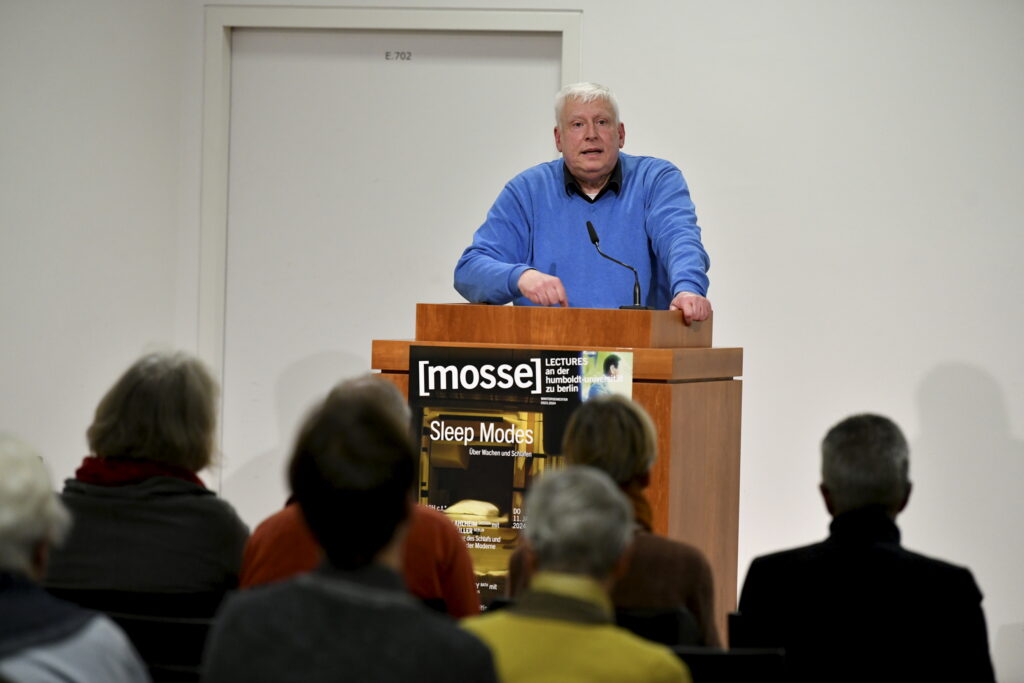
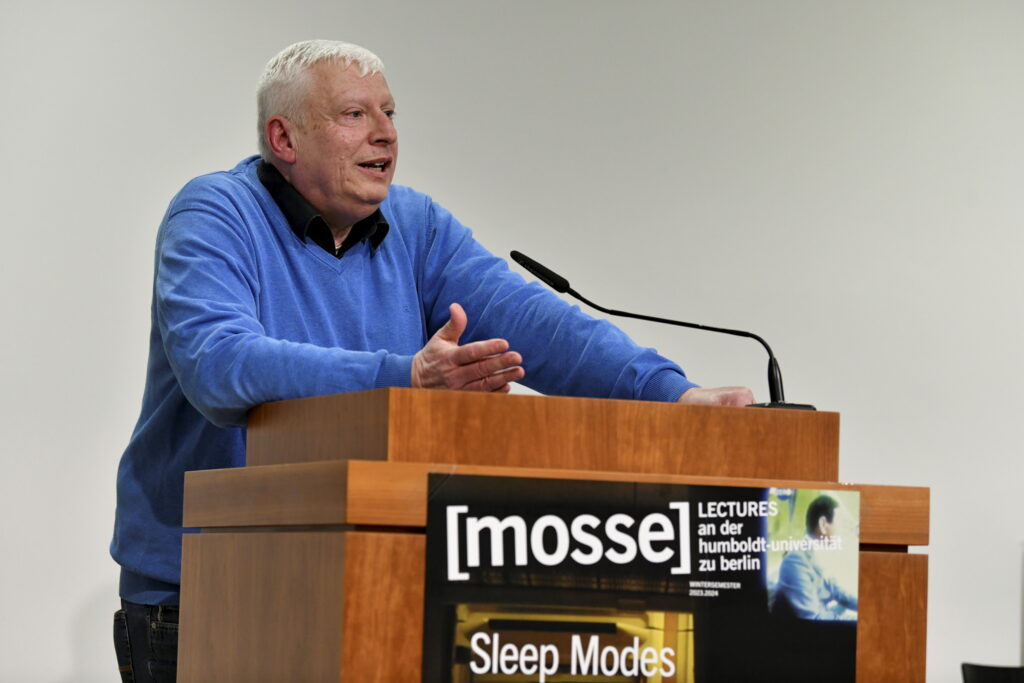
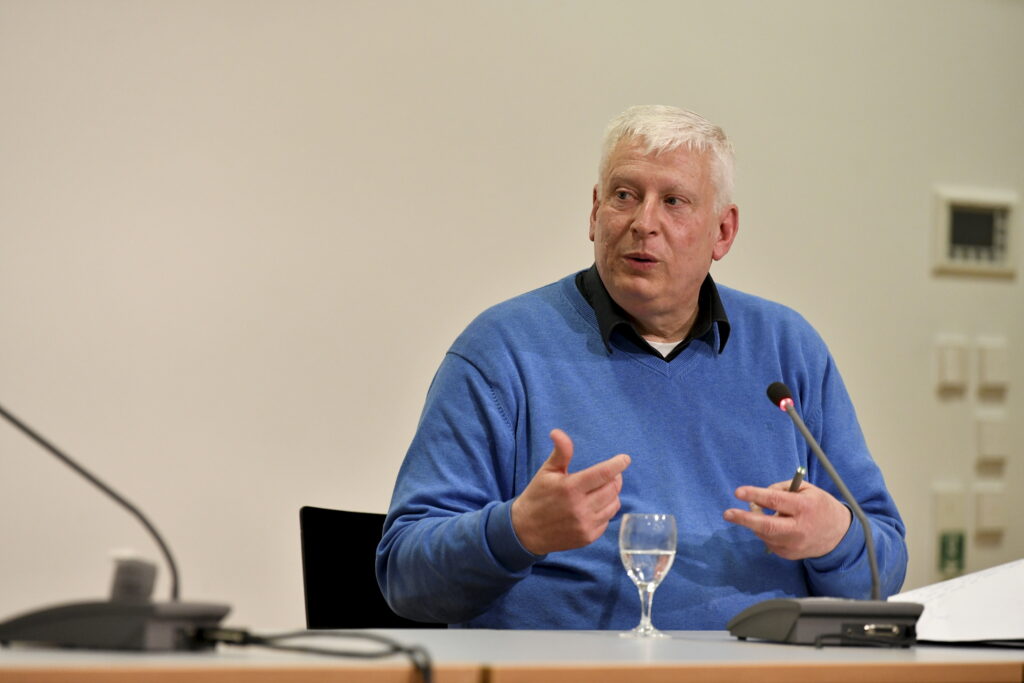
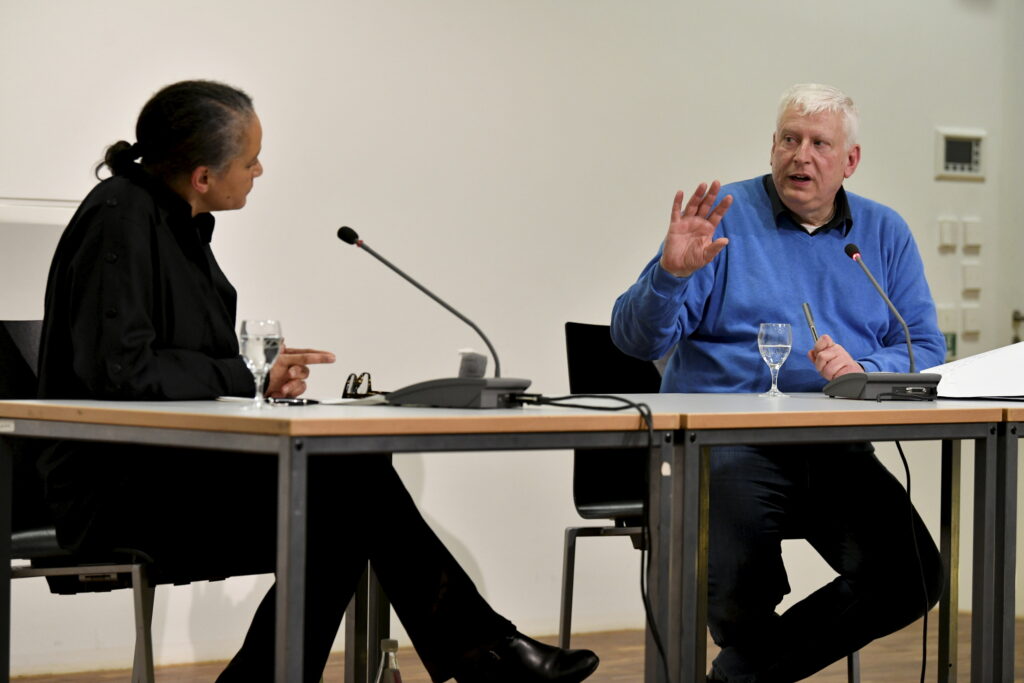
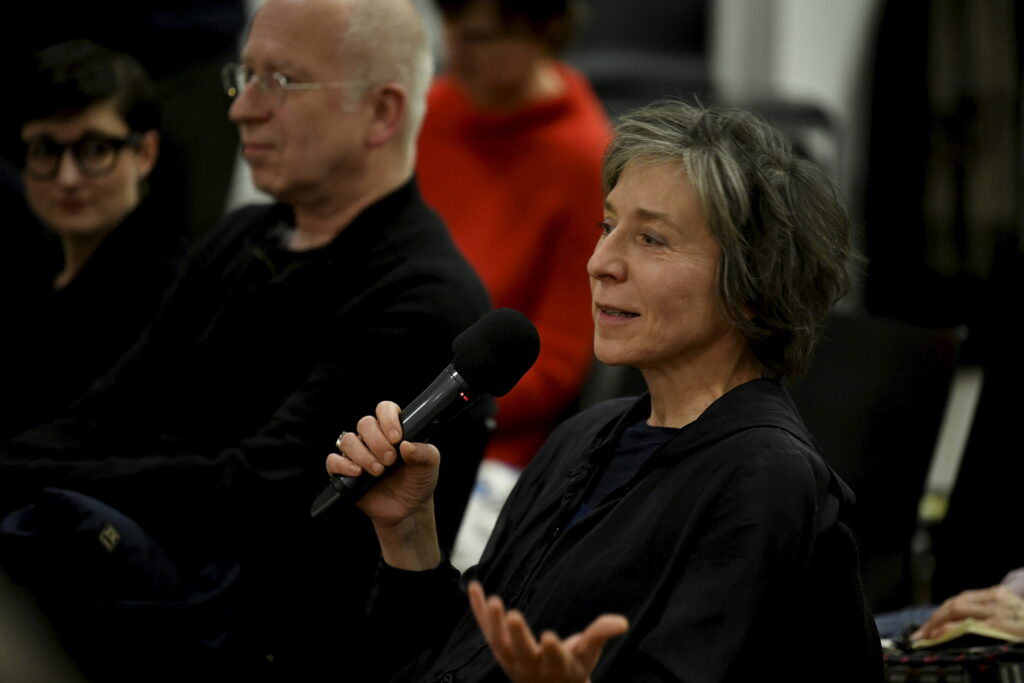
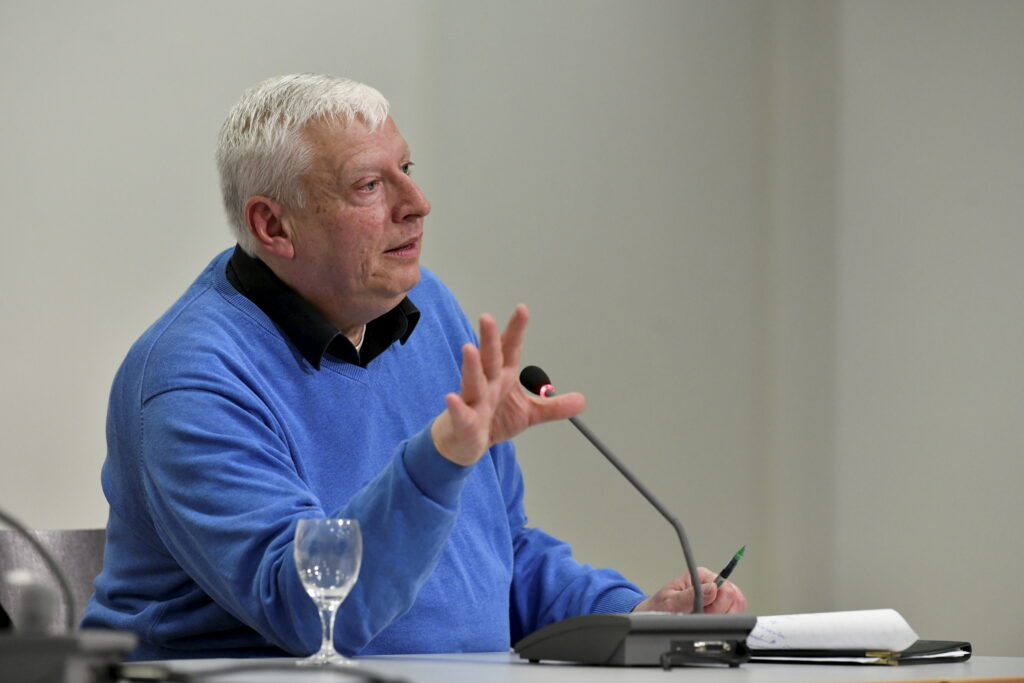
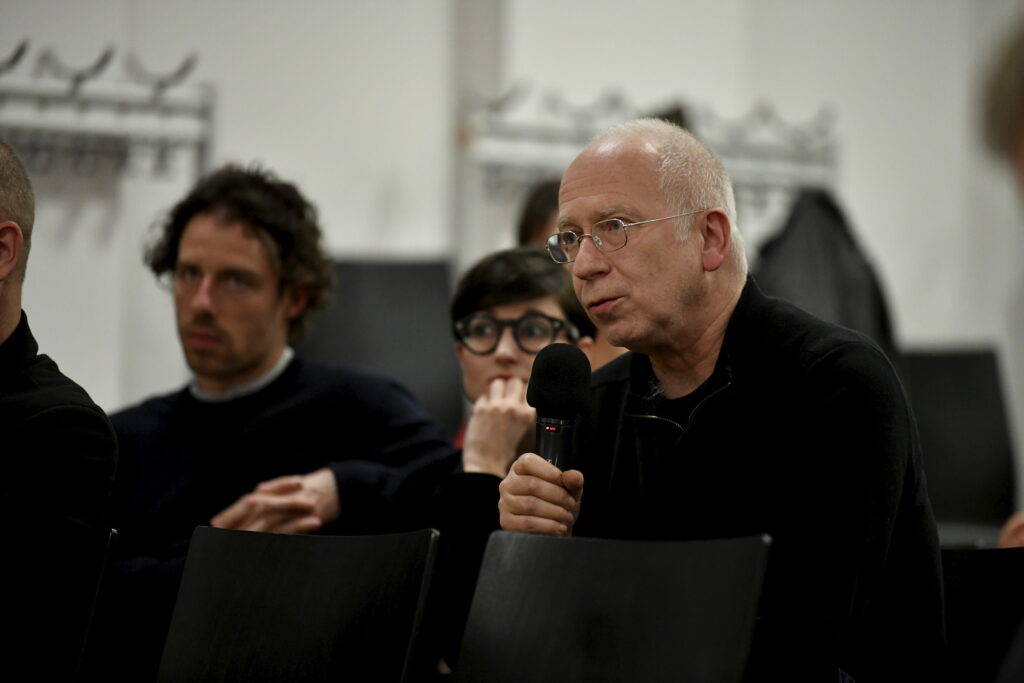
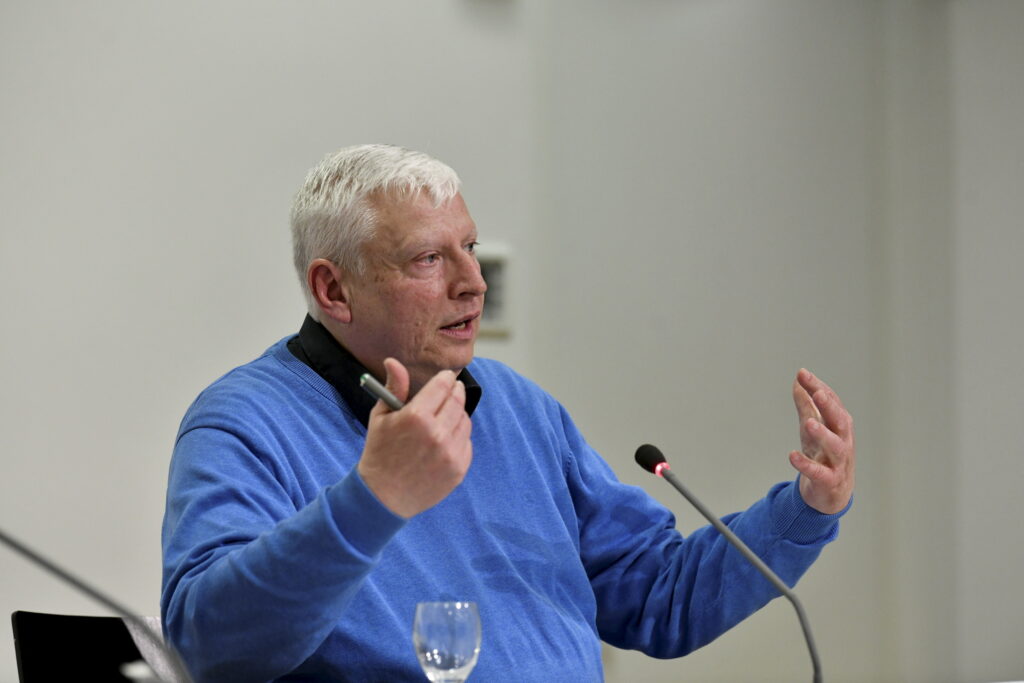
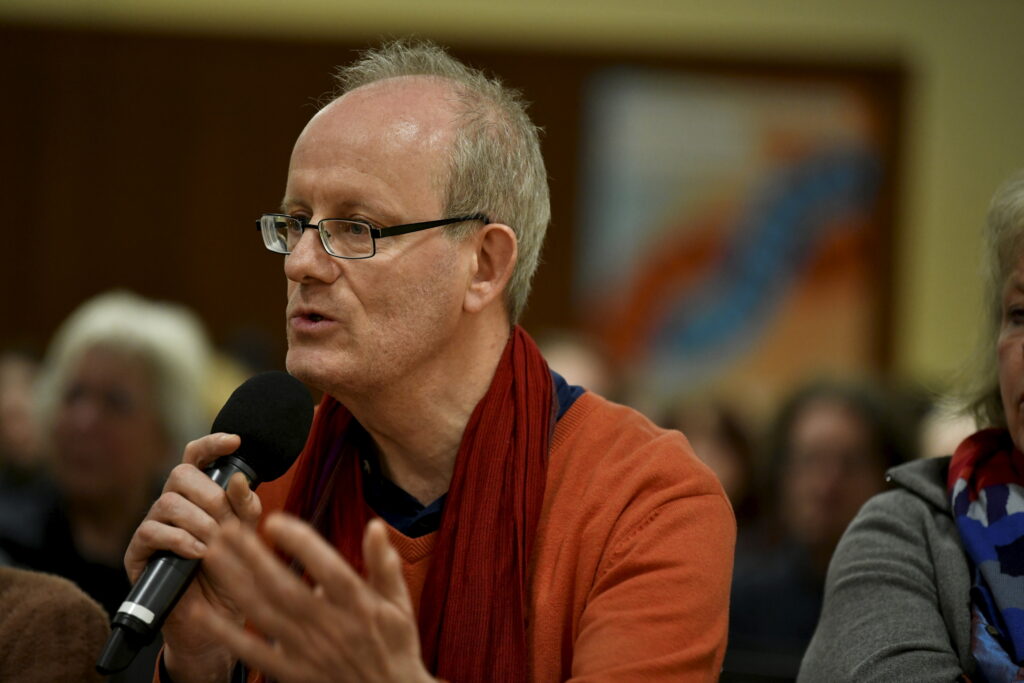
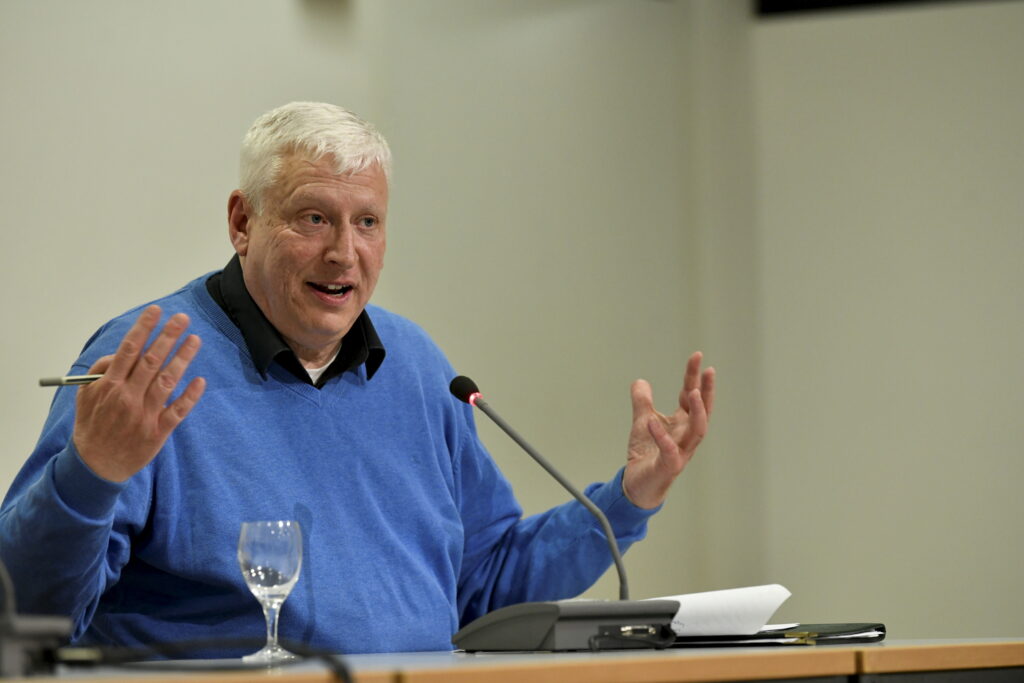
[media response]:
– Torsten Flüh on Night Out @ Berlin: Schlaf und Verstand als politisches Problem
– The lecture by Hannah Ahlheim in the Hörsaal-podcast of Deutschlandfunk Nova (rerun, moderated by Katrin Ohlendorf): Innere Uhr: Die Vermessung des Schlafs
– Torsten Flüh on Night Out @ Berlin: Vor und nach dem Schlaf
– The lecture by Michael Hochgeschwender in the Hörsaal-podcast of Deutschlandfunk Nova (rerun, moderated by Sibylle Salewski): Black Lives Matter und Evangelikalismus in den USA


